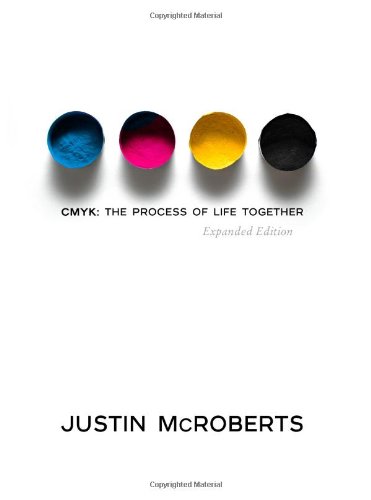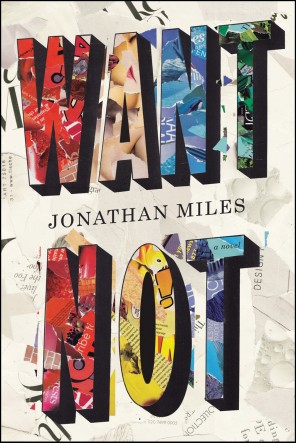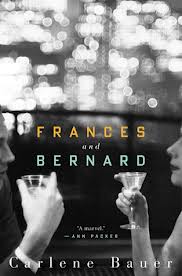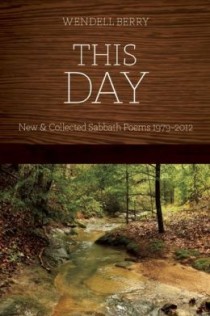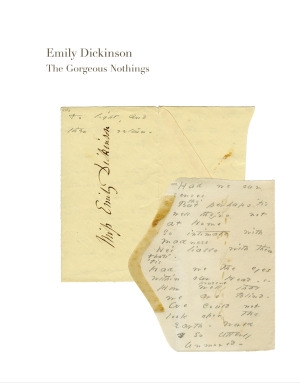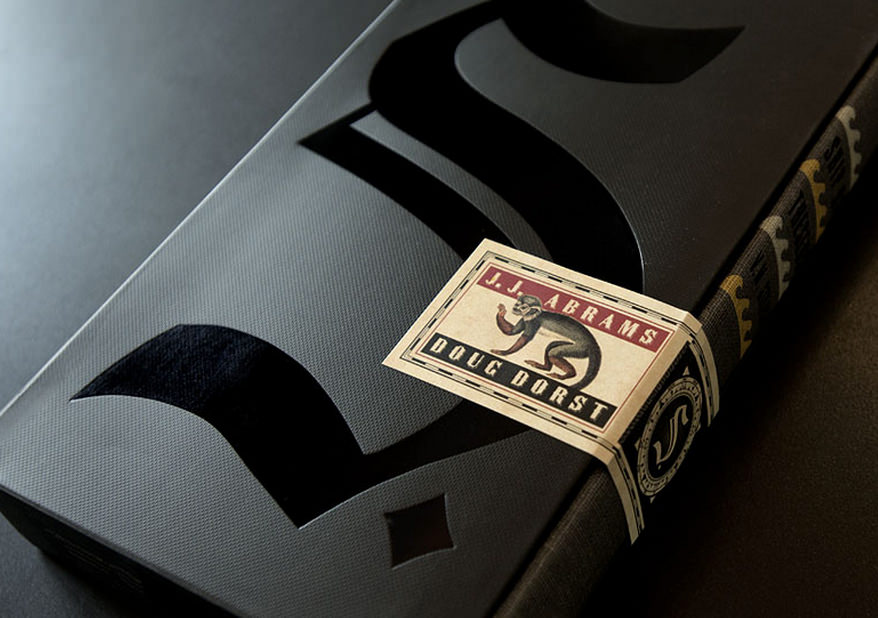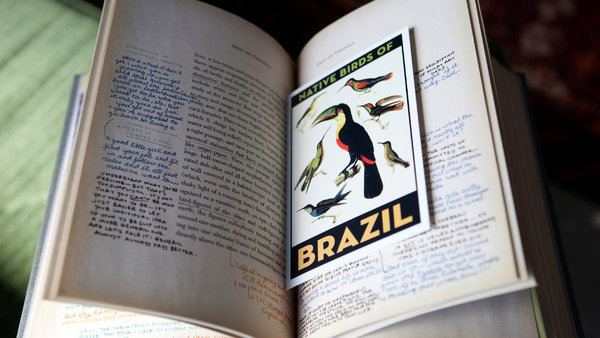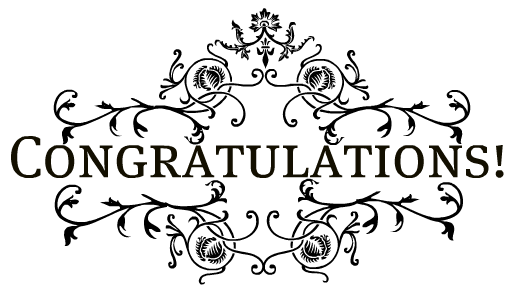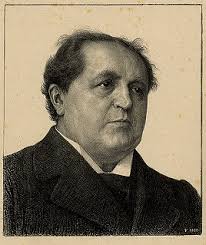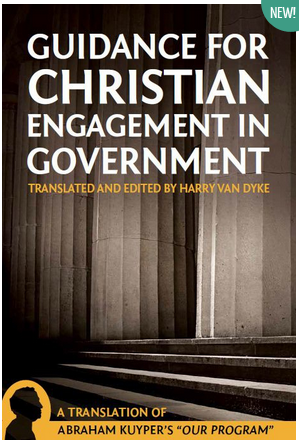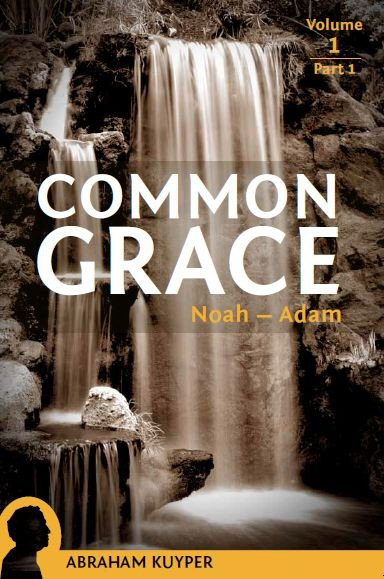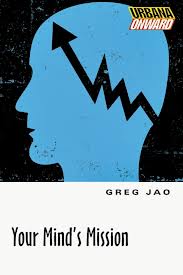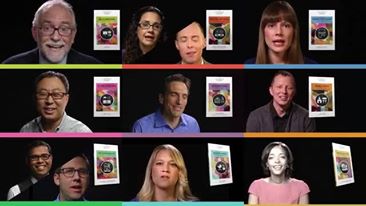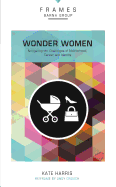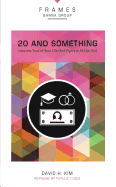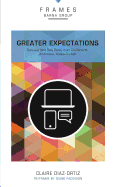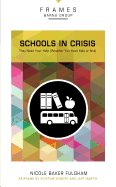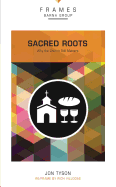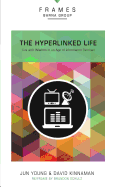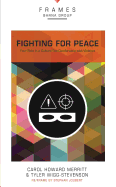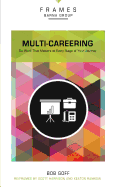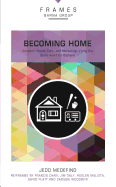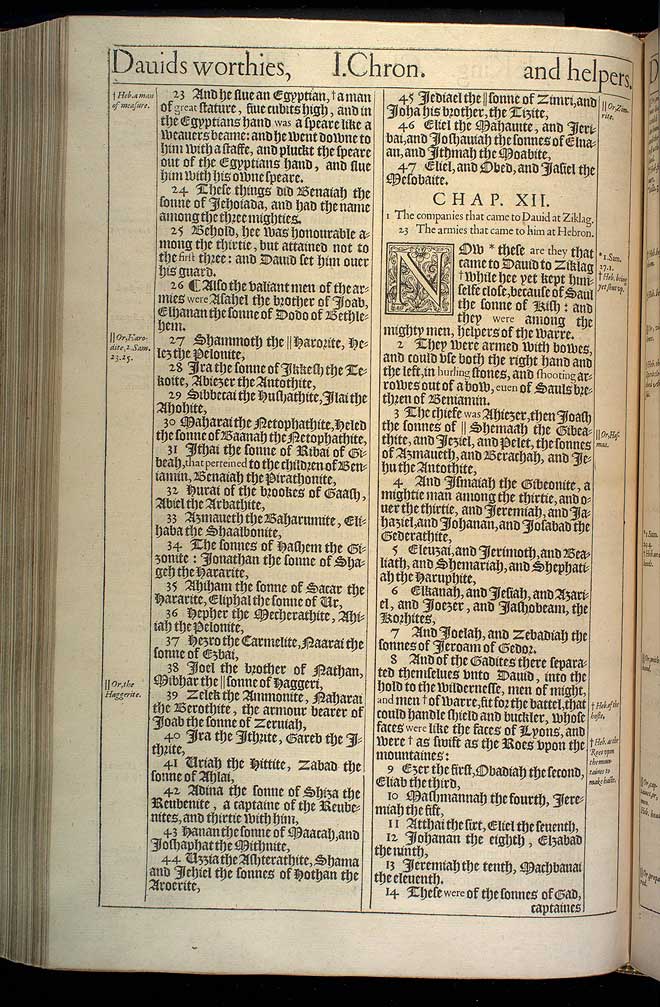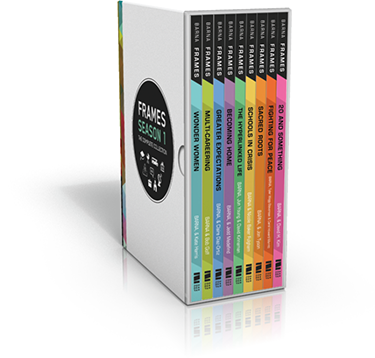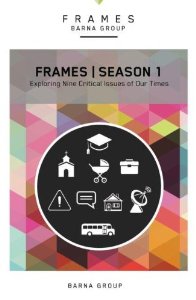Sometimes I start with a feeble little effort at creative writing, asking for a drum roll, please, yada yada. Not this time. We’re heading right into it: part one my list for books of great worth, true merit, important or fun, favorites of the year, the very best of 2013.
Yes, I’ll use that “best of” phrase, but you know the caveats. Best is a malleable term, at best, and I’ll twist it the best I can to give me the excuse to crow about these great books, my picks for the Hearts & Minds awards of 2013 (whether they are, truly, the very best or not.) I’m no specialist, and don’t have a large circle of critics to help evaluate everything – obviously, this is one guy’s guess. So, from our small corner of southern York county, and this spot in cyberspace, these are my modest salutes. Offered with great confidence, but aware that we’re not the Pulitzer.
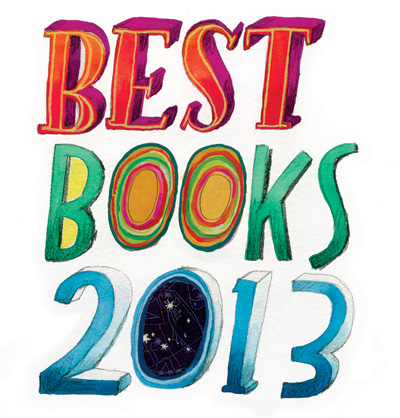 graphic from School Library Journal
graphic from School Library Journal
So here we go, PART ONE of a list of our favorites of the year. More coming soon, so stay tuned. All are 20% OFF and you can order (from us, please) by clicking on the links at the bottom of the list. Thanks for caring, thanks for reading.
HEARTS & MINDS BEST BOOK OF 2013
Playing God: Redeeming the Gift of Power Andy Crouch (InterVarsity Press) $25.00 I had
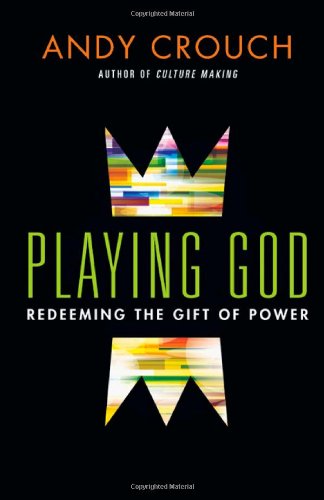
tipped my hand in my first review of this, even before we had Andy do a program and autographing time with us here; I knew this was going to be my choice for one of the very best books of our time. Most who have read it agreed: it is wonderfully written, thoughtful and elegant, mature and eminently readable. There is a fine blend of serious scholarly analysis, some power-house storytelling, and some very creative and compelling Bible study. How do we respond to the commonly-held assumption that power corrupts and that people of faith, in the quest to be humble and Christ-like, ought not wield power? If you want to make a difference in the world, if you care at all about social reform, institutional renewal, or the health of our culture, this is not just relevant and rewarding but one of the truly essential reads of our time. Here is my long review from a September BookNotes. We are very, very enthusiastic naming this as a true general category award winner, Best Book of 2013.
HEARTS & MINDS BOOK OF THE YEAR – ACADEMIC
Imagining the Kingdom: How Worship Works James K.A. Smith (BakerAcademic) $22.99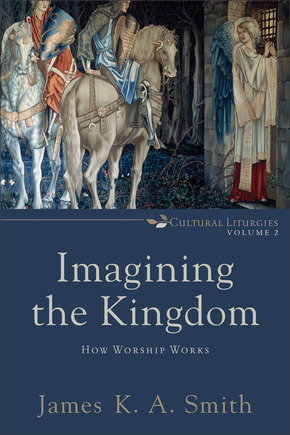 I have thought long and hard about this. I will admit that this book is, for many of us, a bit slow going at times. Some of it (helpfully, in my view) reviews some of the provocative ideas and proposals of the first volume, Desiring the Kingdom: Worship, Worldview, and Cultural Formation and a few readers may find that duplication annoying. But I do not, and I do not think it distracts from this great book. Another reason a few readers might not be drawn immediately to this is because of the subtitle – most know that his first book insists that the most thick and lasting rituals -secular or Christian, at the mall or at church – are those that shape our desires, what we most love. So, having critiqued in the first volume the rather thin habits of most Christian congregations, and warned of the formative influences of the seemingly more substantial secular litanies, he now turns to how true Christian worship can, in fact, help turn us into robust Christians who live for Christ in all areas of life.
I have thought long and hard about this. I will admit that this book is, for many of us, a bit slow going at times. Some of it (helpfully, in my view) reviews some of the provocative ideas and proposals of the first volume, Desiring the Kingdom: Worship, Worldview, and Cultural Formation and a few readers may find that duplication annoying. But I do not, and I do not think it distracts from this great book. Another reason a few readers might not be drawn immediately to this is because of the subtitle – most know that his first book insists that the most thick and lasting rituals -secular or Christian, at the mall or at church – are those that shape our desires, what we most love. So, having critiqued in the first volume the rather thin habits of most Christian congregations, and warned of the formative influences of the seemingly more substantial secular litanies, he now turns to how true Christian worship can, in fact, help turn us into robust Christians who live for Christ in all areas of life.
Smith has been a student at the Dooyeweerdian Institute for Christian Studies in Toronto and he has taught much about the integration of faith and learning at Calvin College in Grand Rapids, and he has served as editor for Comment, the prestigious journal of the neo-Calvinist think-tank, Cardus. Some readers may want him to get on to the work of cultural engagement, social reformation, doing public theology and helping us thinking about how to work for human flourishing and the common good. We like it when he writes about politics and poetry and philosophy, even. But worship? Well, yes — yes, this is it. We are lovers, of course, which is what is at the heart of worship, and what we love most will shape our lives and our cultures. We simply have to move with him into this discourse on church and worship and the roles and ways of rituals and liturgy and such. (Naturally, if you are among the minority of Christians who is a pastor, preacher, or worship leader, this is right up your alley.) And so, while I am aware (unlike most of our wonderfully-written and usually very accessible picks for favorite books) that this is a particularly demanding and at times even obtuse work, it is none-the-less of extraordinary importance. This book should be widely known among us, widely read, struggled with, studied and lived out. It, is, like its predecessor, truly one of the most important books published in this decade. Here were my early remarks about it from a January 2013 BookNotes We are glad to honor it. Without a doubt, a best book of 2013.
Discipleship in the Present Tense: Reflections on Faith and Culture James K.A. Smith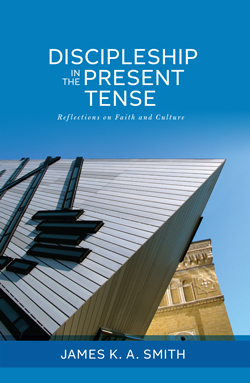 (Calvin College Press) $14.00 This is a no-brainer, as they say. As I’ve noted, Jamie Smith’s award-winning Imagining the Kingdom is surely one of the most talked about books of the year. (Besides our little award, a recent Books & Culture essay insisted that it, together with the previous Desiring the Kingdom, are the most important works of public theology in our time!) Doubtlessly, Smith will continue to be a major figure to wrestle with. (He has two new books coming in Spring of 2014, by the way — one to be published by Eerdmans [How (Not) To Be Secular] on the eminent and heavyweight Canadian philosopher Charles Taylor and a sure-to-be provocative one in the Baker series he edits (“The Church in the Postmodern Culture”) to be called Who’s Afraid of Relativism?) Professor Smith is known in the arcane guild of philosophy, he is known within the theological world (he has written on Augustine, on Kuyper, as a Pentecostal, and more) and he edits the premier neo-Calvinst journal about renewing our social architecture, Comment. (Of course he has spoken at Jubilee in Pittsburgh, at places like Q Ideas, and he is scheduled to be with us here in York next summer.)
(Calvin College Press) $14.00 This is a no-brainer, as they say. As I’ve noted, Jamie Smith’s award-winning Imagining the Kingdom is surely one of the most talked about books of the year. (Besides our little award, a recent Books & Culture essay insisted that it, together with the previous Desiring the Kingdom, are the most important works of public theology in our time!) Doubtlessly, Smith will continue to be a major figure to wrestle with. (He has two new books coming in Spring of 2014, by the way — one to be published by Eerdmans [How (Not) To Be Secular] on the eminent and heavyweight Canadian philosopher Charles Taylor and a sure-to-be provocative one in the Baker series he edits (“The Church in the Postmodern Culture”) to be called Who’s Afraid of Relativism?) Professor Smith is known in the arcane guild of philosophy, he is known within the theological world (he has written on Augustine, on Kuyper, as a Pentecostal, and more) and he edits the premier neo-Calvinst journal about renewing our social architecture, Comment. (Of course he has spoken at Jubilee in Pittsburgh, at places like Q Ideas, and he is scheduled to be with us here in York next summer.)
This recent little volume is significant for a few reasons, as I explained in my breathy celebration of it when we first got it in this fall. I hope you read that review, but I can easily explain our naming it as an overall Best Book of 2013. There are two reasons: first, Smith is such an important writer that any anthology or collection of his work is very valuable, and those wanting to keep up with his prodigious output will want it. His shorter essays have ways of complimenting and supplementing and clarifying his other work; anyone wanting to follow his career should have these numerous previously published pieces at their disposal. Secondly, and more importantly for many of us, for those who have found Imagining and Desiring to be a bit dense, a bit too philosophical, or who haven’t worked up the courage to buy them yet, this collection of articles, reviews, sermons, essays, letters and columns is a perfect way to better understand just what the fuss is all about. I am a huge fan of Desiring the Kingdom, and, as you have seen, have declared Imagining the Kingdom one of the most important books of 2013. This valuable collection could build a helpful bridge into those important tomes. Dip in, enjoy, and appreciate this fine writer whose vision of how we live creatively in the world as it is seems to be nearly essential reading for our times. Can I say that? Yes I can. Kudos to the Calvin College Press for bringing this out and congrats to Jamie for the provocative and teacherly way he has helped us all.
BEST BOOK IN HOMILETICS and BEST BOOK ABOUT BOOKS
Reading for Preaching: The Preacher in Conversation with Storytellers, Biographers,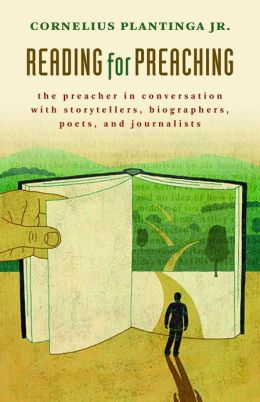 Poets and Journalists Cornelius Plantinga, Jr. (Eerdmans) $14.00 I am fully aware that I say this a lot, but it is none the less true: I was very deeply moved by this, had to fight back tears as I sat on my couch and read the first pages of this wonderful, elegant, wonderfully-crafted book about books. I know, I know, this is how I make my living, peddling books, and I know the community of authors is part of my tribe. I get it. But you do, too – don’t you? You read books, book reviews, you care about the world, and know that reading widely can make you a better person. I bet you are glad for books about books, that remind us that God cares about this glorious art of good writing and these marvelous gifts of paper and page.
Poets and Journalists Cornelius Plantinga, Jr. (Eerdmans) $14.00 I am fully aware that I say this a lot, but it is none the less true: I was very deeply moved by this, had to fight back tears as I sat on my couch and read the first pages of this wonderful, elegant, wonderfully-crafted book about books. I know, I know, this is how I make my living, peddling books, and I know the community of authors is part of my tribe. I get it. But you do, too – don’t you? You read books, book reviews, you care about the world, and know that reading widely can make you a better person. I bet you are glad for books about books, that remind us that God cares about this glorious art of good writing and these marvelous gifts of paper and page.
If you are not a preacher, I suspect you are glad for the best ones you know, and I bet the best ones you know are readers. Plantinga, as I have explained elsewhere, has lead workshops for years introducing preachers and pastors to the best writers, convinced they will be better Christian leaders as they delve deeply into the best writers we can find. This book is designed for preachers, but it is good for anyone who wants to know how to be shaped and nurtured by the printed page, especially if you a leader or teacher. Being in conversation with biographers and historians and poets and reports – not to mention fiction writers young and old, who write for adults and children – will make you a better person, and certainly, a better communicator. Buy this for yourself, and buy another for preachers you know. If they know of Plantinga’s reading program, they will love this book. If they don’t, you have done them a lasting service. To make our enthusiasm clear, we are naming this as one of the very, very best Books of 2013, in two categories, no less. I don’t think I am overstating matters to say that this is a book I have been waiting for for 30 years.
BEST BOOK FOR THOUGHTFUL CHRISTIAN GROWTH
In Search of Deep Faith: A Pilgrimage into the Beauty, Goodness and Heart of Christianity Jim Belcher (InterVarsity Press) $17.00 I know I am sometimes swayed by the raves of people I respect, and when friends like Steve Garber (and so many others) endorsed this with gusto, I realized I had to take it very seriously. And did I ever enjoy it! I loved Jim’s previous book (Deep Church: A Third Way Beyond Emerging and Traditional) and like him a lot; I trust his instincts and appreciate his good storytelling and agree with his Reformed worldview. I hope you saw the review I did when In Search of Deep Faith released this fall -you can tell that I was really taken with it. I can confidently recommend this to many kinds of readers, knowing it is a fun travel story, and an informative book about important Christian writers, and a very, very wise guide to deeper faith and lived faithfulness. Congratulations, Jim. I am sure this book will be esteemed widely, and awarded often. It deserves to be consider as one of the best books of the year.
HEARTS & MINDS AWARD FOR MOST INSPIRING BOOK AND PROJECT
More or Less: Choosing a Lifestyle of Excessive Generosity Jeff Shinabarger (David C. Cook) $17.99 I don’t expect even our most careful readers and most loyal customers to remember, but we premiered this book at Jubilee 2013 last February and almost instantly sold out the one carton the publisher let us have early — the book was releasing several weeks later, and they simply didn’t have enough printed, yet. Once the audience heard Jeff talk about how this book came about, what it was for, and how it would help readers make good choices about their lifestyle, and once they saw the videos (now available on line) they lined up to shell out. This is rare and notable, and we were glad to be part of the buzz. And part of the buzz is that this book invites us all to do the sorts of things (in our own way and place) that Shinabarger does. His creative entrepreneurial abilities are amazing, and his willingness to start sustainable projects and do good stuff that serve others, is remarkably inspiring. That the Love Does guy Bob Goff writes the forward to this might give you hint of the energy and the challenge.
Happily, More or Less deserves to be known and popular, and it will make a difference in your life, I’m sure. There are many books — very good ones, thank goodness – that critique American materialism, that reject the consumerist worldview, that invite us to be more generous with our time and money. This book is written in a way that even non-religious folks could enjoy it, tells so many great stories, and frames the questions of “how much is enough” by bigger questions about relationships and calling and service and care and joy and our shared humanness, that I can hardly recommend it enough. We could award it for being such a good book, we could award it for having such stimulating on-line videos and other extra features, and we could award it for being the fastest selling book all year when we ran out in like five minutes. Our hat is off to Shinabarger and his own generous, giving way of life, and his excellent ability to so honestly invite others into this joyful, innovative way of making a difference. Check out his good website here (and then come back and order it from us.)
BEST COFFEE TABLE BOOK (TIE)
Qu4tets Makoto Fujimura, Bruce Herman, Christopher Theofanidis, et al (Fujimura Institute) $35.00 When I first heard of this I thought the plan was nothing short of genius — visual artists and a contemporary classic musician doing a multi-media project inspired by T.S. Eliot’s famous Four Quartets. Such a clever plan deserves an award merely for being such a very great idea! Realizing the caliber of artistic insight and skill accumulated by these collaborators, I knew it would be truly splendid. My early BookNotes review noted not only how cool the idea was but how handsome and classy the over-sized paperback was, how truly interesting the essays were that compliment the moving artwork. I wrote,
Further, there are three very significant essays (also enhanced with lovely type and smaller art pieces throughout.) Matthew Milliner, James McCullough, and Jeremy Begbie are the authors who add their critical reflections, celebrating and exploring not only the original work of Elliot but of these recent works done in response to him. What a joy to see them reflecting on Eliot and Herman, Eliot and Mako. What a grand, collaborative effort this all is and what a grand gift that results. Qu4rtets is simply magnificent.
It was a tremendously valuable project, and we are honored to carry it. And we are confident to name it – amidst hundreds of art catalogs and coffee table books — one of the very best such books of 2013. Qu4tets is truly, truly unique and exceedingly notable.
Through Your Eyes: Dialogues on the Paintings of Bruce Herman Bruce Herman & G. Walter Hansen (Eerdmans) $50.00 If this were only a handsome hardback portfolio of some of the works of talented painter (and Gordon College art professor) Bruce Herman, it would be worth every penny; he is an artist of huge talent and deep faith commitments and has been in our generation of true leader of the “faith and arts” conversations. This volume is made even more exquisite by his collaboration with his friend, an art collector and patron and New Testament scholar who contributes good essays. Modern artists Makoto Fujimura writes of it,
It isn’t too often that we get a glimpse into a behind-the-scenes relationship between a patron of art and an artist. In this case, Walter Hansen and Bruce Herman have journeyed together as a theologian and a cultural commentator, two men with cultural stewardship as a goal for the next generation. Bruce Herman is one of the wisest practitioners of art today, and Walter Hansen one of the key influencers and patrons of Christians in the arts. This book is a treasure chest full of wisdom for those serving in the world of art and faith — it’s a work of deep friendship and conversation originating from the highest realm of integrity.
This is a book you will be glad to own, happy to share, and pleased to display.
BEST BOOK OF THE YEAR ABOUT MUSIC
It Was Good: Making Music to the Glory of God edited by Ned Bustard (Square Halo Books) $24.99 It isn’t every book that gets two reviews at our Hearts & Minds BookNotes. I did a lengthy review last fall explaining this brilliantly-conceived compilation – a musical sequel to the previous (award winning) must-have It Was Good: Making Art to the Glory of God. Then, I did another expanded review, describing every one of the 31 good chapters, exclaiming what was so thrilling, insightful, fun, or moving about each. Ned Bustard is a good friend of Hearts & Minds, and I’d be tempted to just award him an H&M Best Book for anything he releases, but I do not want to suggest I am doing that. I am not. Trust me, this is truly a well-earned, truly deserved, (and much-needed) volume, drawing on a truly amazing array of musicians of various sorts, sharing good thinking about all aspects of music making in God’s world. This book is handsomely designed, consistently well-written, and fills a big spot on the bookshelf – there is nothing like it in print! It is for music lovers of all sorts and, obviously, any person of faith who is involved in music making, in church or world. Sing it out, choir — this is one of the very best books of 2013!
FAVORITE GUILTY-PLEASURE READ ABOUT MUSIC
Rocks Off: 50 Tracks That Tell the Story of the Rolling Stones Bill Janovitz (St. Martin’s Press) $25.99 I know. And I’m not even a huge Stones fan. But when I borrowed this from the library, I couldn’t put it down, and then wanted to extend the pleasures, just reading a chapter a day. It chronicles the social context, cultural ethos, relational issues (yikes), musicological matters and nerdy, recording techy details of 50 representative songs that capture the good, the bad, the ugly, the serious and the stupid, of this amazing band of brothers and their world-changing work. If you are interested at all in the popular culture of the last 50 years or enjoy learning about how songs (and albums) are made, recorded and marketed, this detailed set of glimpses into these songs is more than fun, it is illuminating and at times even lyrical. The author is a good writer, himself a rock musician (of the important indie band Buffalo Tom) and author of the 331/3 guide to Exile on Main Street. This is, I suppose I don’t have to say, R rated, for all the imaginable reasons, and some you can’t even. I cringed at times, but loved it.
BEST BOOK ABOUT POPULAR CULTURE
Popcultured: Thinking Christianly About Style, Media and Entertainment Steve Turner (IVP) $17.00 Any year when there is a new book by Steve Turner is a good one. His solid, basic books on faith and the arts and pop music (start with Imagine) and his more specific ones such as the one on the history of the song Amazing Grace, the one about the music played as the Titantic sank, his authorized biography of Johnny Cash and his Gospel According to the Beatles shows his great awareness of so much going on in our world, his serious (if playful) approach to the faith/culture interface, and his prominent position as a rock journalist and cultural critic. This is one we have needed, though, and I’m very glad to announce it being one we want to honor this year. Popcultured moves the conversation about a Christian framework for engaging pop culture forward considerably, not only as Turner offers new insights and formulations and concerns, but because of the way in which he guides us into thinking faithfully about topics about which little theologically aware has been written. Kudos for years of good writing, but we really want to celebrate this important collection on topics such as fashion, comedy, advertising, celebrity culture, photography, technology, alongside more regularly approached (but still vexing) aspects of culture such as film and TV. He gives very helpful insight about how people of faith might wisely consume, critique and create artful leisure pursuits. Excellent.
BEST BOOK ON DIGITAL TECHNOLOGIES
Shaping a Digital World: Faith, Culture and Computer Technology by Derek C. Schuurman (IVP) $18.00 If the length of my BookNotes remarks in announcing a new book is any indication, this is clearly vying for the book of the year — I hope you saw my long rumination about the general themes of how Christians should engage culture, what we might fruitfully say about technology, and why a book of this wise (Kuyperian) tone is so very, very needed. This is now the go-to book for a clear-headed study of technology, written by a guy who has done significant research, serving in industry (and, now, good teaching) about computations and high-tech, digital innovation. Yes — this is the very best book yet done in this genre and one of my personal favorite books of the year.
BEST BOOK OF BIBLICAL STUDIES (ACADEMIC LEVEL)
Paul and the Faithfulness of God N.T. Wright (Fortress) $89.00 I am not a Biblical scholar (ha–I’m not any kind of a scholar) but the guild of Biblical scholars were as eager to see this as any book in recent memory, and weighing in at 1700-some pages (and a supplemental volume entitled Pauline Perspectives: Essays on Paul) this deserves a couple of awards. We could joke about its depth and thoroughness and we can quibble about, well, about a lot, it seems. But there is no doubt – none whatsoever – that this is the most significant book in Biblical studies in years. When the final volume(s) are done in the utterly magisterial Christian Origins series, we will surely be able to say it is the most important such work in our lifetime. Kudos to Tom for his dedication to church and academy, for doing such astute research, and for being in conversation with so many different constituencies. It is rare for a scholar to have so many genuine relationships in so many quarters, and we want to add our voice to those who insist not only that he is a scholar to be read, but that we are glad for his support and friendship. I should also note that as heavy (and detailed) as this material is, it is readable, gladly free from much of the arcane jargon that afflicts most scholarly writing, even in the field of New Testament studies. This deserves every award it gets, and we hope our little one adds to the respect this work deserves.
BEST BOOK OF BIBLICAL STUDIES (ACADEMIC LEVEL)
HONORABLE MENTION
Pauline Perspectives: Essays on Paul, 1978 – 2013 N.T. Wright (Fortress) $69.00 Did I mention that this nearly 650 page tome also came out this year, the same day as the two volume Paul and the Faithfulness of God? I have read much of this and some is slow-going, but it is an ideal way to get up to speed on some of the most important conversations around Pauline studies in recent years. This is an essential collection of Wright’s most important (and in some cases, influential) articles on Paul that have been published in the last 35 years.
As it says on the catalogue copy, “The book begins with N. T. Wright’s auspicious essay of 1978, when as a young, aspiring scholar he gave the annual Tyndale lecture in Cambridge, and proposed, for the first time, ‘a new perspective’ on Pauline theology. The book ends with an expanded version of a paper he gave in Leuven in 2012, when as a seasoned scholar at the height of his powers he explored the foundational role of Abraham in Romans and Galatians. In all, the thirty-three articles published here provide a rich feast for all students of Paul, both seasoned and aspiring. Each one will amply reward those looking for detailed, incisive and exquisitely nuanced exegesis, resulting in a clearer, deeper and more informed appreciation of Paul’s great theological achievement.”
For these obvious reasons, we believe it goes nearly without saying — but we want to say it loudly — that Pauline Perspectives is one of the most important books of the year and its value should not be underestimated or missed in light of the publicity of the new Paul volumes.
BEST BOOK OF BIBLICAL STUDIES (ACADEMIC LEVEL)
RUNNER UP
Jesus Is Lord, Caesar Is Not: Evaluating Empire in New Testament Studies Joe Modica (InterVarsity Press) $22.00 I am a big fan of Scot McKnight, and a friend of Joe Modica, and I trust them both a lot. If other more ideologically-driven authors gathered together scholars to debunk the anti-Empire themes and progressive politics that have appeared in recent years in New Testament studies, I might be skeptical (or worse.) Happily, this isn’t a project of reactionary debunking, but one seeking faithful refinement. These editors pulled together reasonable pieces that offer critique of some of the (alleged) excesses and over-reaching about the politics of Jesus and Paul, pushing back just a bit against the recent trend which begins to read anti-Empire themes too quickly into too many of the Biblical texts. It walks through each part of the NT, offering very fair and insightful scholarship, some that is in conversation with other popular authors. For instance, some chapters criticize Dominic Crossan; another one that is in conversation with one of my own personal favorite books, Colossians Remixed by Walsh & Keesmaat. Agree or not with the details of the exegesis or socio-political implications of these critics, this is the sort of debate we need to have if we are going to engage the Bible and live out the implications of it all today. By the way, there is a very nice preface by Andy Crouch, who offers his good writing to set the table for this interesting book. Highly recommended.
BEST BOOK OF BIBLICAL STUDIES (POPULAR LEVEL)
Case for Psalms: Why They Are Essential N.T Wright (HarperOne) $22.99 Again, I tipped my hand when I reviewed this at BookNotes; I said that when I got to the last page, I went back to page one and started it all over again. This is rare for me, and I must say I was as taken with this as any book in this category all year long. You can read my BookNotes review here. Tom Wright will be talked about for decades as one of the most significant church leaders and Bible scholars of our time, and 2013 will be recalled as a year when he released his long-awaited, multi-volume work on Paul. We want to celebrate this fine, small book which offers profound insights on the worldview of the Hebrew Psalms and invites us to consider their value in our personal devotion and our liturgical worship. This is truly a great little book and some of what he says here is fresh and profound! Join us in offering praise for this as we honor it with a Best of the Year award from Hearts & Minds, please!
BEST BOOK OF BIBLICAL STUDIES (POPULAR LEVEL)
RUNNER UP
Jesus on Every Page: 10 Simple Ways to Seek and Find Christ in the Old Testament David Murray (Nelson) $16.99 Years ago I found immense clarity and coherence in the Reformed insight that the Bible unfolds as a drama, with Christ’s incarnation and work as the heart and highlight of the story. Soon, I began to realize that some of our best Bible preachers and teachers have a Christ-centric view of the whole Bible and some, either deftly or with a ham-fist, begin to see hints and whispers and types and symbols of Christ all over the Hebrew Scriptures. There are many books on this historic-redemptive approach to the Bible and there seems to be a rediscovery of this “Christ in all of Scripture” hermeneutic. I’m glad, too since one of my own favorite texts — the story of the post-resurrection walk on the road to Emmaus in Luke 24 — has Jesus telling the disciples about himself from the law and the prophets. So it can (it must!) be done. This new book shows us how. With its ten different styles and types and models, it offers the Bible student and teacher wise and careful suggestions on how to properly move into this important bit of faithful proclamation. Puritan scholar and Banner of Truth editor Ian Murray says it is “one of the most helpful and most needed new books that I have seen in a long while.” Murray is a classic, old time Scottish Bible teacher, and this book is refreshing for being non-sensational and unhip. It is clear and wise and very good. It deserves an honorable mention.
BEST BOOK OF BIBLICAL STUDIES (POPULAR LEVEL)
RUNNER UP
Writing in the Margins: Connecting with God in the Pages of Your Bible Lisa Nichols Hickman (Abingdon) $16.99 Is it fair to award a book that I was lightly involved with? I wrote a lengthy foreword to this and, to be honest, am a bit proud of it. (I posted it here, if you want to read my few pages.) What I said there I meant, and we really want to honor Lisa for this, her second book, one that isn’t quite like anything else of which we are familiar. It includes guidance about Bible study, invites folks to interact with the text by writing in the margins, and gives tons of appealing stories about those who have scribbled in their books, especially in their Bibles. I loved reading this, was inspired by her nice style and how she both teaches and motivates, explains and challenges, promising us – as I promised in the preface – that we will come to know God better if we enter in to this kind of engaged, creative process of attending to the Word of the Lord, even in our daily lives. Pick up this book, pick up a pen. Enjoy the interesting design, do the exercises, ponder the questions. And then join us in celebrating this book, one of our favorite books of 2013.
BEST BOOK OF BIBLICAL STUDIES THAT IS MORE THAN BIBLICAL STUDIES
God’s World: Reclaiming the Doctrine of Creation Jonathan R. Wilson (Baker Academic) $24.99 I know this is mostly a work of Biblical studies, and it is rather academic, but I think it is so very significant that it transcends the genre, making it a tremendous and important resource for basic Christian growth and for anyone who cares about Christian cultural engagement and social action. Too many of our artistic, political, and social reforms are advanced unrelated to the norms and ordinances built into the creation and this study helps us bring the “theater of God” (as Calvin called it) into view. I thoroughly enjoyed this meaty work (even if I wished for a different word or emphasis here or there, or another insight or better teasing out of the implications) and really want to honor it as a much-needed contribution, one of the most valuable books of the year. There are some handsome art pieces, too, and I’m glad when publishers go that extra step to make a book interesting and useful.
HEARTS & MINDS AWARD FOR BEST BIOGRAPHY OF THE YEAR
Abraham Kuyper: Modern Calvinist, Christian Democrat James D. Bratt (Eerdmans) $30.00 I don’t think I have to explain much about this, but allow us to remind you that when I reviewed it earlier in the year I suggested that this was the grand, thorough, well-written biography we have been waiting for for years. No other biography of Kuyper has covered his life and times and beliefs and work with such historical detail and such clarity of understanding. I always tell those who are interested (please, please be a little interested!) that Richard Mouw’s little book, Abraham Kuyper: A Short and Personal Introduction is the place to start, and it should be honored and used — it really does explain the generative neo-Calvinist vision of Kuyper who has influenced the modern evangelical fascination with culture so very much. But there is no doubt that this is the very best serious work on Kuyper, and the biography of the year, breathtaking, important, historic. Kudos.
BEST MEMOIRS:
DULY NOTED, HONORABLY MENTIONED, GREATLY APPRECIATED
North of Hope: A Daughter’s Arctic Journey Shannon Huffman Polson (Zondervan) $16.99 I as floored when I saw that the evangelical publisher was going to publish a memoir with a blazing endorsement by Terry Tempest Williams and another by the esteemed writer Scott Russell Sanders (who would call it “Daring, perceptive, and eloquent.” This remarkable story is almost too much to tell, but it artfully tells the story of a woman retracing the Alaskan wilderness journey to the very spot where her beloved father and step mother were mauled and apparently eaten by a grizzle bear. Part wilderness travelogue, part memoir of unimaginable grief from unimaginable tragedy (and, curiously, part beautifully written reflections on rehearsing and preforming in the acclaimed Seattle Pro Musica choir of a Mozart Requiem) this quest for healing is lyrical, raw, and unlike anything you’ve ever read. I appreciate the lines of an endorsing blurb by former National Park Ranger, author Cindy Crosby, who notes that Polson “comes to believe that there is grace and wonder in the most unlikely places, that the landscape’s wildness can teach you about letting go of control, and that Easter doesn’t arrive until you’ve experience Good Friday.” Even when I was only part way through it, I knew I would name is as one of the most memorable books I’d ever read, and surely one of the Best Books of 2013.
The Little Way of Ruthie Leming Ron Dreher (Grand Central Publishing) $25.99 I cannot tell you how often I have talked about this book this year, surely one of the books I’ve most often held up, quoted from, and cited the eloquent back cover blurbs. It isn’t every book that gets a lovely endorsement from Elizabeth Gilbert, the Eat Pray Love lady — herself a heck of a writer, in my view – as well as good religious writers such Ann Voskamp and serious critics like Alan Jacobs. The short version is that “crunchy con Catholic” pundit Dreher reluctantly moves from the high-powered, fast-paced big city to the funky, rural town in the deep south to help care for his dying sister, the unforgettable Ruthie Leming, who we learn about in the first part of the book. He finds, though, a way of life there, a substantial, communal, life-giving, sustainable way of life that seems to come out of a Wendell Berry novel. This is a book you should read with a box of tissues handy, as it is a true tear-jerker (but not cheap or sentimental, either, as Dreher is both a mature thinker and expert wordsmith) but you should also consider a note pad or highlighter to process it all (did I mention that the author is a mature thinker and expert wordsmith?) This is a complex book that is wise and good and valuable, one that you gladly will never forget. You should find a group and talk about it together, as it is (forgive the cliché) about learning to live and learning to die. This fully deserves an award from us — one of the very best books of the year.
Moving Miss Peggy: A Story of Dementia, Courage and Consolation Robert Benson (Abingdon) $15.99 If the previously mentioned memoirs were long, often painful dramas of rejecting and finding faith, stories of betrayal and angst and the journey of finding one’s way in the world, this is in many ways the exact opposite. Benson is, as you know, one of our favorite authors, and his economic, sensible prose is perfect for the quiet sensible advice that comes to us in this story of the Benson family matriarch and the families decision that their beloved Miss Peggy has to be moved to an assisted living facility. A writer like Benson brings his tender heart and wise ways to anything he writes about but there is something extraordinary about this forthright telling of such a seemingly sad tale. I cried through much of it – bringing my own story and my own mother’s needs into my reading of every page – and I think you might too. This is a short book, telling a story that is not particularly spicy and I suppose not even all that exceptional. No matter. It is clearly one of the most cherished books I’ve owned all year, and we want to honor it any way we can. Thank you, Mr. Benson.
When We Were on Fire: A Memoir of Consuming Faith, Tangled Love, and Starting Over Addie Zierman (Convergence) $14.99 When I saw that Publishers Weekly had named this as one of the top five religious books of the year, I knew I had to read it promptly. I am not sure I want to crow that loudly about it (they also named the new book by N.T. Wright, which is a different matter altogether.) Actually, it is very good, and neither Beth nor I could put it down; we enjoyed it, pondered it, and (at times) were frustrated by it. It is (mostly) very well written, an occasionally funny, often sad and strangely moving tale of a young woman’s journey through the conservative evangelical sub-culture of her youth and young adulthood, and how many of the clichés that seemed so true and assuring came undone as she left home, went to college, got married, and tried to find a sane church and reasonable faith community. As you might guess, she goes through quiet a lot and there were, indeed, some hurtful episodes and some weird shaming and some clueless leaders along the way. Some of this is heartbreaking and much is spot on. As she takes up cynicism, drinking, and struggles to deepen a marriage and faith (both which seemed to be in jeopardy) I at times wondered why she couldn’t more easily adjudicate the cheesy and superficial and odd aspects of American fundamentalism, and why she didn’t realize that most Christian theologies and communities aren’t like that. But she is not alone in her myopia and grown-up disdain for her religious past – this is nearly a trend, now, tell-all exposes of the mixed-bag of fundamentalist faith, and the conflicted experience of wanting to escape toxic religiosity, but being unable to shake the appeal of Jesus and the charm of a life of devotion. And so, Zierman’s tale is captivating and insightful and perhaps emblematic. It deserves the applause it is getting, certainly one of the best memoirs of the year. She is a good writer, and is well worth listening to. Cheers!
God on the Rocks: Distilling Religion, Savoring Faith Phil Madeira (Jericho Books) $24.99 Not unlike Addie Zierman, Phil grew up in a strict, evangelical home and he has come to reject some of the beliefs and many of the habits of his conservative upbringing. Like any good child of an evangelical family from a conservative church, he struggles with both the wonder and joy, and the weird and the toxic, and this beautifully-realized memoir invites us into the turmoil and excitement of breaking free, or trying to. This book accomplishes much – it is a rip-roaring story and it shines a light onto a particular time and place in the American religious landscape, even as it invites us into the tales of a in-demand studio musician who has played with some of the best musicians of our generation. But it is in this same genre, the falling somewhat out of faith story, the journey out of the stricter aspects of American evangelicalism.
But God on the Rocks is different then Zierman’s When We Were On Fire in at least three ways: Phil came of age not in the commercialized, programmed evangelicalism of the early years of the new millennium (with True Love Waits campaigns and Veggie Tales and Meet You at the Flagpole prayer meetings and I Kissed Dating Goodbye nuttiness) but came alive in his faith at the tale end of the Jesus People movement in the early 70s (which becomes fertile soil for some crazy stories of his own, some that might have completely undone poor Zierman.) Phil is a baby boomer, and the story is wonderful for those of us who recall growing up in that world of conventional religion, mostly, and the arrival of the Beatles… Secondly, Phil did have a bit of a unique angle into the evangelical world as he travelled with CCM rock star Phil Keaggy and eventually worked his way into producing literally hundreds and hundreds of other albums with mostly faith-based performing artists as diverse as Carmen, Steve Taylor, Mark Heard and the like. And, thirdly, unlike Zierman, Phil seems to have more than a literary agenda — Zierman’s intent is mostly to write her story and she accomplishes it beautifully — but Madeira begins to ruminate on a reformulated set of convictions, a re-doing of evangelical faith, as it were. He’s not a trained theologian, but he knows enough to find a path beyond fundamentalism, and is familiar with the likes of Frederick Buechner and Barbara Brown Taylor and Brian Maclaren, just for instance. That he is a professional musician who plays with Emmy Lou Harris and hangs out with the likes of Bruce Cockburn (and continues to produce projects such as his Mercyland: Hymns for the Rest of Us) makes this particularly fun; that he is involved in a mainline Episcopalian church and not terribly unhappy how he has (as the Quakers might put it) “come ’round right” makes this book a bit less tragic than others in this genre. Phil’s gracious visit to our store last summer was a highlight of the year for us. (You can read my overview of his work and the book written before he came, here.)
The Dark Path: A Memoir by David Schickler (Riverhead) $27.95 I think this was one of the best-written memoirs that I’ve read all year – certainly a thrilling read, maturely written, and very, very revealing. I must admit that am a bit reluctant in naming this as a best of the year because there is much of what the movie ratings systems would tersely call adult content. The short version of this complex story is that the author feels called into the Catholic priesthood and yet does not want to be celibate. It was really fascinating to read about a devout religious person struggling with the sexcapades at his major university a decade ago, and how the hook-up culture and party scene conflicted with his faith (Charlotte Simmons, anyone?) He wants to be strong like his father was and he often recalls the “dark path” under a set of trees in his boyhood home where he felt a mysterious presence of God. Despite the candid description of the young adult misbehaviors, the angst of trying to discern a religious vocation, the sexual and romantic heartbreak, this is an enjoyable tale which is very well told, and I found it not only as engaging as any novel I’ve read this year, but illuminating in so many ways. As an evangelical Protestant myself I wanted often to whisper into his year a Biblical truth or two, and there were moments when I winced. Oh, how I longed for another religious voice to appear, somebody who could guide him and mentor him in more sensible ways — especially when a relationship with a trusted priest gets ugly. But this is his story, not mine, and it was deeply touching, very interesting, and truly deserving of being lauded as a Book of the Year.
Jujitsu Rabbi and the Godless Blond: A True Story Rebecca Dana (Putnam) $25.95 Okay. Whew. Man, should I even mention this? What a crazy, crazy book. What insight, what prose. What a story, what a character. This was all the rage in Brooklyn, I’m told, last summer, and I grabbed it because I like interfaith stories, and this hip gal was from Pittsburgh, and I read several reviews that told how well-written and entertaining (and odd) it was. Once I started the first couple pages – narrating a vulgar knock-down fight between she and her jujitsu Hasidic rabbi roommate — yes, you read that right — I could not put it down. What an attitude she has, what skill as a high-octane, new millennial writer. This creatively told memoir is multi-layered and fast paced and tons of fun; the short version is weird but true: she grew up among engineers in Pittsburgh admiring Sex in the City and reading the romantic New York tales of Nora Ephron, worked in high fashion in Manhattan, has her heart broken, needs a new apartment, and finds on Craigslist an opening in a Lubavticher part of Brooklyn. Her soon-to-be roommate, Cosmo, is a heavy-metal-loving, martial arts-learning, Hasidic Russian rabbi who is in the process of losing his faith while she is showing some signs of wanting to regain her own. Stranger things have happened, I suppose, but I don’t know any novelist who would be so audacious as to make up a story like this. I like the copy on the back that notes that her story shuttles “between the worlds of religious extremism and secular excess, faith and fashion” as she searches for meaning. The new paperback has a readers guide. I suspect you already know this: it isn’t for everyone. And she doesn’t quite find the deep meaning we hope she discovers. But I loved it, still, as a glimpse into another’s life, odd as it is.
BEST BOOK OF MEMOIR, TEACHING AND ENCOURAGEMENT
Bread & Wine: A Love Letter to Life Around the Table, with Recipes Shauna Niequest (Zondervan) $18.99 I don’t know how to tell you why this book is so very, very great, or why it moved me so much, but it did. I think it may be the book that we’ve had the most feedback about this year, one of our best sellers, and one that nearly everyone loves. It includes a bit of memoir (not unlike her wonderful collections of essays Cold Tangerines and Bittersweet) and some teaching about a lively Christian vision of food and hospitality and the glories of “life around the table.” Some of our friends have raved about some of the recipes and I know some are working their way through all of them. We are not organized or energetic enough to do this, but it was even fun reading her recommended menus. I suppose there have been other books inviting us to deeper relationships formed around food and faith; I know hospitality is a big concern among church folks these days. I don’t think I don’t anything like this, and it is truly one of the best books of the year! Kudos to Zondervan for giving us such a lovely book, and thanks to Niequest for sharing her life, once again, in her own beautiful style.
BEST BOOK OF MEMOIR, TEACHING AND ENCOURAGEMENT
RUNNER UP
Freefall to Fly: A Breathtaking Journey Toward a Life of Meaning Rebekah Lyons (Tyndale) $19.99 I so loved reading this and loved writing about it at our store’s BookNotes blog went it came out early in the year. In many ways it is a memoir, but it is more than a literary telling of a life story; the author offers her hard won insights about being a woman (with young children, in a strange, new home) and how we can all step into our sense of vocations by trusting God. Lyons does not make it sound easy. As the wife of a high-powered, busy evangelical leader (Gabe Lyons, founder of Q Ideas) and the mother of a special needs child, with anxieties about living in crowded New York city, her tale is riveting. That she draws on a circle of women friends is not only nice to read about but is significantly instructive. This is a very good book, enjoyable as a memoir-like story, important as a call to freedom and trust and Christian growth, and helpful as a guide to discovering a more healthy, hopeful, happy life. Yes, it is written by and for and about women and their own unique callings and vocations, but I enjoyed it as a male. Guess that’s one of the things that makes it deserving of a Best of the Year Award. Nicely done.
BEST THEOLOGICAL ESSAYS: RUMINATIONS & REFLECTIONS
My Bright Abyss: Meditation of a Modern Believer Christian Wiman (Farrar Straus and Giroux) $24.00 This is not exactly a memoir, but a set of (very) serious reflections, remembrances and writerly essays about the famous poet’s convictions about life, meaning, suffering, faith, God, the gospel, and what it all meant as he learned he had little chance to live with a terminal illness. The essay that appeared in The New Yorker several years ago had many intellectuals wondering if Mr. Wiman would write more, and his book had been eagerly awaited and very enthusiastically received. As a writer he is exquisite, as a thinker he is deep and well-read, and as a person of faith he is at times insightful, sometimes profound, and, at times (or so it seems to me) nearly indecipherable. Still, this is a very highly regarded work (it was reviewed in The New York Times Book Review by Kathleen Norris, by the way.) To ponder just some of his many important insights making reading this well worth the cost; to be able to have such a important, well-written book is, obviously, a great gift. Even if his faith wavers and his formulations waver from the orthodox to the quizzical, this is surely one of the fine examples of a major intellectual writing publicly about Christian faith. I am not alone in being grateful for Mr. Wiman’s writing (some lines in this work are so vivid I had to close the book and close my eyes) and work (he continues to teach literature at Yale Divinity School, by the way) and for God’s own gracious work in Wiman’s life. This is doubtlessly, one of the more notable books of 2013.
BEST BOOK OF ORDINARY CHRISTIAN LIVING
Eat with Joy: Redeeming Gods’ Gift of Food Rachel Marie Stone (IVP) $16.00 This book came out just in time for the Jubilee conference last year, and I highlighted it from up front, suggesting to the gathered crowd of 2500 college students that this is a perfect example of the sorts of things we most like to promote–a well written book that has a near-perfect blend of thoughtful analysis, fun stories, clear Biblical teaching and practical advice. From a profoundly Christian perspective, Stone shows the good and the bad, the beautiful and the broken, and offers radical, but not extremist suggestions for a faithful Christian lifestyle in this time of agribusiness and industrial food systems. There are many fantastic books on food and faith, and we stock a lot. Some are more artful, some more scholarly, some more detailed. None strike just the right balance as this lovely little book, and we are happy to declare it a key book on this important topic, and surely one of our very favorite books released in 2013.
I realize there are oodles of books on how to grow in faith, trust God, be more Christ-like and such. Some are very good, many are helpful. But this shows forth a particular aspect of daily discipleship that is neglected, and deserves to be known not only as a good book on the foodie shelf, but as an essential resource for what some simply call Christian living.
BEST BOOK OF ORDINARY CHRISTIAN LIVING
HONORABLE MENTION
When Spiritual But Not Religious Is Not Enough: Seeing God in Surprising Places, Even the Church Lillian Daniels (Jericho) I know that there are authors and many, many younger people especially, who like this phrase “spiritual but not religious.” Some are substantive people but many mean they are vaguely interested in their inner lives, and appreciate the beauty of a sunset or the serenity they feel when practicing yoga. (This is a different tact then the one offered by evangelicals like the popular Jefferson Bethke who insist that a living, demanding relationship with Jesus is different than the nominal and delusional “religion” that one sometimes gets from merely being a part of a church. That view sounds a bit like the old saw that just because a mouse is in a cookie jar doesn’t make him a cookie or that going into a garage doesn’t make one a car.) Anyway, the shots against religion, cheap or not (and Rev. Daniels tends to think they are cheap and is pointed in her rebuke) come into focus here as he counters with wonderful stories of mundane stuff, stellar writing explaining the not-so-stellar ways in which God shows up as the gathered faithful do church day by day, in small places, neighborhoods and conventional ministry. Daniels is a pastor in the UCC and her testimony of what God is doing within mainline liberal Protestantism – not to mention as God shows God’s self in ordinary and oddball settings – makes for joyous, heartening reading. It is a collection of short essays, so it is lovely to pick up and reflect upon. There are no serious arguments and much about storytelling, which is, I suppose, its own poignant apologetic. I loved this book, read some chapters more than once, and think it is a great antidote to the easy move away from the messiness of church as most of us experience it. Read this book, listen to this author, enjoy the reminder that God is alive and well, even in places like the local small town parish, the small member youth group, the church picnic or choir, or a nursing home Bible study or food pantry ministry. And, as many chapters note, in places outside of the local church. Yep, this is the real deal, gloriously reported, wonderful for being so darn ordinary and interestingly told. We are happy to honorably mention it again!
BEST BOOK OF ORDINARY CHRISTIAN LIVING
RUNNER UP
Both-And: Living the Christ-Centered Life in an Either-Or World Rich Nathan & Insoo Kim (IVP) $16.00 There are, as I’ve mentioned, and as you surely know, dozens and dozens of helpful, gospel-based, even profound guides to authentic and fruitful living. So many are solid and helpful, and we have ’em all. But there are a few that stand out, and this one is one that deserves special end of the hear affirmation. I am a bit sad that it doesn’t handle more dichotomies than it does (ahh, what a long book it would be) and I am afraid it won’t appeal much to mainline folks who aren’t caught up in the either/or of, say, word vs deeds or evangelical vs charismatic, or orthodoxy vs orthopraxis. Some may be a bit uncharitable (and I think wrong-headed) to think “I’ve got this down, these old tensions pretty well resolved, and, anyway, his Vineyard-based charismatic tradition isn’t mine anyway.” Fair enough. But I agree with mystic Richard Foster who says “Both-And is a prophetic word for our day. It is relevant. It is challenging. It is compassionate. It is courageous.” This book transcends much of the polarization one hears about among conservative congregations, and this delightful call to be “both-and” (not settling in a lukewarm middle) is very helpful. If you are concerned that culture war rhetoric has hijacked our faith, if you resent voices from one side or the other trying to suck us into one-sided ideologies, I think this fine call to proclamation and demonstration, justice and mercy, unity and diversity, may be just for you. I like it. I’m doing what it says, too, both and. I have both some critique and want to loudly award it as a fantastic book for 2013. How’s that? Yay.
BEST BOOK ABOUT HISTORY
Why Study History: Reflecting on the Importance of the Past John Fea (Baker) $19.99 This deserves an award – it seems that nearly every book he writes deserves an award – although this one is simple, short, clear, and yet (as he explains) very important. There are more scholarly works (indeed, one that he co-edited a few years ago is called Confessing History) that explore a sophisticated philosophy of history from a Christian perspective, but for a quick read, succinct and compelling and helpful, this simply can’t be beat. Eric Miller notes that his “love of his craft is infectious and his knowledge of it inspiring.” Thomas Albert Howard calls it “a splendid, engaging book at once erudite and accessible.” I wish that every academic discipline had such an introductory level book of such fine insight so admirably written. Kudos, John. You have gotten more significant awards than this, but we are happy to tip our (tricorn) hats, as well. Hip hip hooray.
BEST BOOK OF HISTORY
Heretics & Heroes: How Renaissance Artists and Reformation Priests Created Our World Thomas Cahill (Doubleday) $29.95 I am sure most of our readers know of this “Hinges of History” series, and the first in that set (How the Irish Saved Civilization) remains a perennial good seller. Here, the quite classy, certainly brilliant, good guy raconteur Renaissance man brings his keen eye and lovely story-telling abilities (the Washington Post called him “a felicitous writer” while the coveted starred review at Kirkus called him “jocular”) and astute discernment together for a passionate study of some of he most important people and events in Western history. The wonder of the book is enhanced by some fabulous full color artwork and lavish illustrative material. This is a very, very handsome, thick hardback, beautifully-made, as good or better than his much-appreciated, glorious one on the medieval era (Mysteries of the Middle Ages.) This is one history book that deserves to be known, a book that brings mature insight to regular readers, smart, accessible, inspiring, even.
BEST BOOK ABOUT THE CIVIL RIGHTS ERA
The King Years: Historic Moments in the Civil Rights Movement Taylor Branch (Simon & Schuster) $26.00 Anyone familiar with the magisterial, highly regarded, prominently awarded massive three volume series “American in the King Years” will be glad to know that 2013 saw a greatly abridged, one-volume title, where the insightful Mr. Branch offers a guided tour to the best portions of the series. I wrote about this a time or two (including this short piece in my monthly column the Center for Public Justice’s Capitol Commentary newsletter) and continue to want to shout about it. You can see it nearly topped the great list of books I recommended during the weekend late last summer as we commemorated the fiftieth anniversary of the March on Washington. There may be other essential books
of the era, but for an introduction, one would be hard-pressed to find a
better text than this.
BEST BOOK OF PASTORAL CARE (FOR ALL OF US)
Good Funeral: Death, Grief, and the Community of Care Tom Long & Thomas Lynch (Westminster/John Knox) $25.00 In our announcement of this, I shared that I read the entire preface by Barbara Brown Taylor out loud to Beth the day it arrived and we were both all choked up as she tells of her own experiences of funerals and why this book by the two Toms is so very, very important. Mainline Protestants should know Tom Long for his many books of pastoral theology and homiletics and Biblical studies, and I hope all BookNotes fans know of our love for undertaker and poet Tom Lynch. Some of their strong opinions about how we ought to do funerals, and how good funeral practices can help us grief well have been published over recent years in The Christian Century and elsewhere. Some pastors have told me that their work is as valuable as any pastoral care training they have ever received. There is little doubt that this book is exceptional, a rare contribution by the best thinkers on this topic. Surely the best book on the topic, this year or any year. Is it right to celebrate a book on death, dying, grief and the business of funerals? In quiet tones, at least, yes, indeed!
BEST BOOK OF PASTORAL CARE (FOR ALL OF US)
RUNNER UP
Walking with God Through Pain and Suffering Timothy Keller (Dutton) $26.95 Early in 2014 Philip Yancey released a short and important follow up to his old book Where Is God When It Hurts called The Question That Won’t Go Away. It is brief and good. Indeed, this question simply will not go away and any faith tradition that doesn’t have care for the suffering (and some hint at answers for those who need help understanding and enduring the pains of the human condition) ought to be ignored. When evangelical and Reformed faith has such a sharp mind and caring pastoral sensibility as revealed in this major work, we want to gladly honor it, to shout about it, to award it.
Keller’s book is in three good parts: the first is fairly philosophical, asking the big question of theodicy, the second provides Biblical studies that can help the hurting, and the third portion offers more practical strategies for walking through the fire of suffering. Each part is excellently done, and together, the book is surely worthy of being named as one of the very best in the field. As with any book (especially on such an unfathomable topic) there will be lines with which you disagree, there will be a tone or touch that rubs you the wrong way. What book isn’t like this? In many ways, it is the mark of a better book, and I hope this book gets a wide readership and that it incites better guidance, philosophically, Biblically, and practically, for those who are walking through pain and suffering.
BEST BOOK ABOUT PASTORING
(TIE)
Relational Pastor: Sharing in Christ By Sharing Ourselves Andrew Root (IVP) $18.00 There are oodles of good books for pastors, some that are a bit heavy, some that are bit simple, and a few that are in that sweet spot of serious but well-written, theological and practical. I think this is one of the more urgent, important topics for many, and this is doubtlessly one of the most substantive and interesting books I’ve ever seen on this. What is is about? It isn’t easy to explain, although the title is pretty self-evident. What does it mean to be a person who cares for others? How are relationships at the core of what we do? What is ministry, especially if we start to think about it as relational? (Root wrote a very impressive book a few years ago taking to task those in youth ministry who talk about “relational” ministry by which they really mean (not to be too cynical about it) “using” relationships as an avenue to mentor youth. That is, these are not real relationships, but quasi/pseudo relationships, with the minister always holding (consciously or sub-consciously) another (often noble) agenda. Can we be in real community together? Can clergy be authentic, and learn to do their work in the context of the messiness of real relationships. You know, and I know, pastors who are pretty lacking in social skills. And there are those who are perhaps too skilled in the techniques of “relationships.” This book helps us all get it right, and while it is a professional book for clergy folk, I think it is useful for any of us, since we are all called to exhibit authentic caring in real relationships, and have to learn to do ministry together in the context of redemptive relationships.
Sensing Jesus: Life and Ministry as a Human Being Zack Eswine (Crossway) $19.99 Those that have shopped with us here or have seen us at clergy convocations or retreats know that we stock hundreds of books about the life of clergy, about pastoral and prophetic care, about preaching, and leading worship, and keeping sane in the ministry, in churches large and small, conservative and liberal. If you are a pastor, or want to help your pastor, we have a book for him or her. This one, I believe, is exceptional. It is a long and often luminously written reflection o, as the subtitle suggests, the human and human side of being in ministry. Eswine wrote a book about preaching a few years ago that we liked (Preaching to a Post-Everything World) and although he is in a fairly conservative faith tradition, I think that his incredible honesty about his own failures, burnout, and pain, could be helpful to nearly anyone in ministry. As it says on the back cover this “presents sound pastoral theology couched in autobiographical musings and powerful prose.” Listen to what Scotty Smith writes, “Where was this book when I was stuck in the unrelenting grind of performance-based pastoring; the spiritual schizophrenia of preaching the gospel of grace with a frozen heart; the lonely pedestal of a pulpit surrounded by thousands of people? Zack, thank you for stewarding your pain and God’s gospel.” Jerram Barrs exclaims that it is “one of the finest books on being a pastor in this generation…” I can certainly name it one of the best in this topic for 2013, can’t I? Yes, I can. I hope you will too.
BEST BOOK OF ENVIRONMENTAL STUDIES
Soil & Sacrament: A Spiritual Memoir of Food and Faith Fred Bahnson (Simon & Schuster) $26.00 We have been talking about a down-to-Earth faith for decades, and our environmental studies section – not to mention our titles about farming and agriculture – has been a good window into what makes us a bit distinctive among religious bookstores. We are seriously committed to a discipleship that is embodied and a spirituality that equips us for living in the real world; caring for the creation is integral to being human, and (it should be obvious) essential for healthy human survival. We are at a crisis point in Western industrial history and we are glad that many publishers are bringing out books about faith and food . This is, to put it bluntly, one of the very best we’ve read, and deserves to be widely celebrated, received with great gratitude, and – we pray – discussed and applied, sooner than later. Join us in giving thanks for this book, a true Best Book of 2013. The title of this shows, by the way, that it is nicely written with plenty of personal anecdotes (although I’d not exactly call it a memoir.) Hilarious memoirist and feisty wordsmith Rhoda Janzen writes of it, “Fred Bahnson had me at the hairy vetch and crimson clover. He bumped me off the couch and into the garden even before I could finish the book. I’m all for seekers who sit around asking, ‘What does it mean to be fully alive?’ But it’s even better when they stop asking and start doing. Faith, it turns out, is not unlike a hand-cranked spreader. Works on all kinds of soil.”
BEST BOOK FOR RELIGIOUS SEEKERS (AND FOLLOWERS OF JESUS, TOO)
Who Is This Man? The Unpredictable Impact of the Inescapable Jesus John Ortberg (Zondervan) $22.99 We love this author and this book, but wonder how to describe it, and – we wonder, sometimes -where to best shelf it in the store? Who really is it for? It is a book about Jesus, obviously, so it goes there. It is the latest in the long line of wonderful, readable books by Ortberg, so it goes on the “distinguished authors” section right inside the front door. But, also, should it go under history (since it shows how so very much of Western culture has been influenced by the teachings of Jesus)? Yes, it should. And should it also be placed with other books about apologetics, for seekers, since it makes such a winsome case about the lovely draw of the person of Christ? Yes, yes, I think that is a great place for it, as it really is a great book to give to anyone who wants an introduction to who Jesus was and is, and the implications that flow from his personhood. Or, should it just go under what we call “basic Christian growth” as it will surely remind church folks why they call themselves Christians, underscoring our basic convictions about the glorious answer to this vital question: who is this man? This book is warm and interesting and thoughtful and persuasive. In workshops about reading I often suggest that folks read at least one book about Jesus every year. This clearly could be one for this year.
BEST BOOK FOR RELIGIOUS SEEKERS (AND FOLLOWERS OF JESUS, TOO)
RUNNER UP
Encounters with Jesus: Unexpected Answers to Life’s Biggest Questions Timothy Keller (Dutton) $19.95 I loved this small, hardback book, and as I explained in my earlier BookNotes review, it offers Keller’s sermons drawn from the book of John, highlighting people who are reported to have met Jesus, and the impact He had on their lives, and the implications of such a living encounter with the Divine and Human One can have for us, today. The first half of the book were messages given in Oxford to a gathering of skeptics and seekers. The second half are talks delivered to a high-powered business group of professionals in Manhattan (again, not necessarily a religious crowd.) These are fine Bible studies for anyone who likes to be inspired, hearing good explications of the Scriptures. But they are also invitations to seekers to investigate the claims the gospels offer about Jesus, and what it means to meet Him. Very nicely done.
BEST BOOK FOR THE COMMON GOOD
On God’s Side: What Religion Forgets and Politics Hasn’t Learned About Serving the Common Good Jim Wallis (Brazos) $ 21.99 Fans of Sojourners get all of Jim’s books and those who are distractors tend not to at all. This is unfortunate, and I think this one is a splendid example of a third voice between the so called religious right and secular left. But it isn’t exactly the Christian left, either – with endorsements by prudent, sophisticated conservative pundits such as Michael Gerson, this is a huge step for Wallis. Here he has given us his best book in years, and an important set of considerations for citizens who have long worked for the common good, and a great starter book for anyone beginning to read for the first time about evangelical faith and public life. I really love much about this, and very sincerely want to honor it.
BEST BOOK OF EVANGELICAL SOCIAL ENGAGEMENT
Evangelical Peacemakers: Gospel Engagement in a War-Torn World edited by David Gushee (Wipf & Stock) $19.00 One of our favorite events we served this year with a big set up of books was a gathering pulled together by Rick Love and his peacemakers ministry. I reviewed this book here and I hope you enjoyed hearing about it, if you say that CPJ column. It was a thrilling day, an important event, and this book is a great testimony of the ways in which the gospel can guide us into thinking about our role in this scary, modern world filled with wars and rumors of wars (and terrorists and rumors of terrorists.) For the diversity of view, the many different angles and perspectives, and the many different themes and sub-topics, we are happy to honor this book as one of the best of the year. Kudos to those who put the event together and to David Gushee for the labor of love pulling together the papers and getting them published.
BEST (AND MOST SURPRISING) BOOK ON CHRISTIAN ETHICS
Fight: A Christian Case for Nonviolence Preston Sprinkle (David C. Cook) $14.99 I have only mentioned this and regret that I have not done it justice in a longer review, earlier. We have shelves (and shelves) of books about peacemaking and quite a few on the Biblical-theological discussion of nonviolence. We have books that favor the just war theory and we have books that argue for pacifism. This is not the first and it will not be the last of books about this urgent question. Jesus said that if His Kingdom originated and was informed by “this world” then his disciples would fight. But, apparently, we should not. This book makes this claim, and what is truly exceptional about it — as Sprinkle says in the beginning – is that he does not come at this as a Mennonite (let alone a liberal social gospel guy.) When passionate evangelicals like Francis Chan endorse it, and it is released by a stalwart publisher of standard-fare pop evangelicalism like David C. Cook, you know something exceptional is going on. I commend Cook for releasing this, commend the author for his candid struggle with what the Bible teaches, and am very glad for one who is not an Anabaptist to take up the Anabaptist challenge and end up with a version of their doctrine of nonviolence.
Agree or not, you should read it – you really should! This is a great book that is very, very helpful, on a topic that will not go away. I cannot name a book in decades that is as clear about this topic that is published into the evangelical subculture by a publisher of this stature. I fear that many stores have not sold it (and even we have sadly not sold it well.) It deserves to be widely known and the author deserves to be listed as one of the major contributors to religious discourse this year. Surely, this is a Hearts & Minds Book of the Year. Kudos, one and all.
BEST BOOK FOR SOCIAL ACTIVISTS
VERY HONORABLE MENTION
The World Is Not Ours to Save: Finding the Freedom to Do Good Tyler Wigg-Stevenson (IVP) $16.00 I don’t know if this means much to you, but when I reviewed this earlier in the year – it came out last January, I think – I sincerely said that I truly wished I had read this 35 years ago. I think I knew the truth this books proclaims – heck, I gave sermons about this exactly topic – but nobody that I have read in 40-plus years of social activism of one sort or another has offered such a sustained and inspiring wise word for us all. If you know young (or not so young) folks wanting to engage the issues of the day or who are drawn to social reform, this book is for them. Even more so, if you know any seasoned activists, folks already involved in fighting the powers, standing for justice, working for life, saving the Earth, freeing the slaves, serving the poor, getting involved in campaigns of human betterment of any sort, then, please, please, let them know about this. Tyler has been a leader working on issues of global peacemaking and particularly nuclear disarmament, and it is clear from his story that we can burn out and be ineffective if we do our work out of guilt or fear or anger. We are to be people of hope and joy, and, in the face of the cruelties of our time, this isn’t easy. This is a no-brainer for me – this is one of the most important books I’ve ever read, and surely a 2013 Best Book of the Year.
BEST BOOK OF SPIRITUAL FORMATION (ACADEMIC LEVEL)
Reading the Spiritual Classics: A Guide for Evangelicals edited by Kyle Strobel and Jamin Goggin (IVP) $24.00 Some of us have been reading spiritual classics of the Western tradition for decades, and for some, especially within the evangelical camp, learning about desert fathers and mothers, medieval mystics and Eastern Orthodox monks and Puritan sages is all somewhat new. Even for those who read Richard Foster’s guides to these great writers, we sometimes wonder what is helpful and what is troubling. We long for partners who can help guide us, with discernment, informed by basic assumptions of evangelical clarity. This book is meaty, big, wise, and altogether extraordinary. The many authors are solid and mature and generous and their views are discerning and helpful. I am sad that few people are drawn to this – maybe not enough of us are reading the classics, or maybe not enough of us hunger for theologically wise and orthodox engagement – but I do hope that our naming it as an award winner this year will help. Hearts & Minds fans know we are exceptionally ecumenical and carry all manner of books from across the theological spectrum. I hope you not only value that, but also trust us when we say that this kind of a book is immeasurably valuable for all of us. Here is my earlier BookNotes rumination on it. I hope you find it persuasive– this is one of the best books of 2013.
BEST BOOK OF SPIRITUAL FORMATION (POPULAR LEVEL)
God in My Everything: How An Ancient Rhythm Helps Busy People Enjoy God Ken Shigematsu (Zondervan) $16.99 When I first reviewed this at BookNotes I shared my delight in the backstory — a stressed out overworked Japanese businessman ends up an urban pastor in Vancouver, stressed out and overworked. He goes to Ireland to discover monastic spirituality, and takes up the idea of a Rule of Life (including sabbath practices and practicing the presence of God.) How this man whose ancestors were samurais could link his Eastern past and his evangelical Christian theology and this Celtic, contemplative spirituality is just wonderful. What is also wonderful is that Shigematsu gets to very much right, including how spiritual formation practices transform us into the ways of Christ, which makes us more human (not less) and more engaged in our callings and careers. No hyper-spiritual or overly sentimental dualism here, his journey down ancient pathways equips us to live deeply and sanely in the here and now. The forward by his mentor, seasoned Presbyterian pastor Leighton Ford is lovely, testifying that he has known Ken for years (since his days as head of the class at Gordon Conwell) and that he lives the stuff he writes about. That bold claim is nearly worthy of an award these days, and the practical advise so winsomely explained in this book does, indeed, have the ring of emerging from a life well lived. God in My Everything really is one of the best books about sacred rhythms and embodied spirituality I’ve seen all year. Praise be.
BEST REPRINT OF A PREVIOUSLY PUBLISHED BOOK OF SPIRITUALITY
Strangers to the City: Reflections on the Beliefs and Values of the Rule of Saint Benedict Michael Casey (Paraclete Press) $15.99 I hope you know the mature writings of this “monk of Tarrawarra” who has done some very good books on the interior life. Here, he gives a very nice overview of the famous Rule, and he gives wise counsel — not breathy or overblown or fabulous, just clear, theologically-wise and substantive. I have one very well-read friend who does spiritual direction who was thrilled to read this, insisting it was one of the best such books he has read in years. There is thick wisdom here, applied and good. And some fine stuff on reading. Oh yeah. This really does deserve applause, and I’m glad that Paraclete (who does so many good books of this sort) gave it a new cover and re-issued it. One of the best, for sure!
BEST DAILY DEVOTIONAL
Awakening Faith: Daily Devotions from the Early Church James Stuart Bell with Patrick J. Kelly (Zondervan) $24.99 There are oodles of great devotionals, some that are small, some that are hefty, some that are eloquent, some that are plain, some that focus exclusively on the Bible, others where the daily readings emerge from certain topics or themes. This is unique, and I hestitate to commend it to one and all, but I really am proud that we stock it, glad for it’s sturdy, lasting, compelling insights. This allows anyone to dip into a bit of reading of early church fathers (and mothers) and learn from some of the earliest sermons and writings from our forebears. In my BookNotes review in early December I named some of those whose writings are represented here, and a few are true classics. I’m sure you’ve heard of Augustine, Athanasius, John Chrysostom and Polycarp; there are also a bunch I bet you’ve never heard of. Some I couldn’t even pronounce. These are our people, our tribe, those pastors and bishops and leaders who were mentored, in some cases, by those who had been influenced by the disciples of the apostles. Wow. Truly, this is a great gift to the reading public, important for churches of all kinds, and a fine way to be nicely introduced to insights and passions and visions of another era. The compiler, James Bell, has been a publishing executive for both Doubleday and Moody Press. Man, that wingspan deserves an award, too. Kudos!
A SPECIAL HEARTS & MINDS FUTURE OF THE CHURCH AWARD FOR GLOBAL CONCERNS and BEST BOOK ABOUT WORLD MISSIONS
From Times Square to Timbuktu: The Post Christian West Meets the Non-Western Church Wesley Granberg-Michaelson (Eerdmans) $20.00 Although this is a complex and dizzying topic, I read this almost in one long sitting. You may not care to know everything about the Christian faith and its face in the global South, let alone how this is increasingly effecting us here in North America. But most serious Christian leaders suggest that we should, and I agree. You’ve got to read something on this, sooner rather than later. Further, I don’t know if you are interested in big-picture ecumenical affairs, but I think knowing a bit about the work of God in the conversations between various denominations and Christian agencies is good. That Granberg-Michaelson’s work as General Secretary of the Reformed Church of America and then as an executive within the World Council of Churches has given him a front row seat to much of the ecumenical discussions of our day makes him an invaluable observer of these things, and here he shares what he has learned, seeing how the global growth of non-Western churches impacts our sense of ecumenicity. (Just for instance, he more than once laments that the headquarters of many global agencies – from evangelical world relief groups to the WCC headquarters in Geneva – are situated away from the center of gravity of Christian religion, which, geographically, is actually Timbuktu, in Northern Africa.) Timbuktu, Granberg-Michaelson reminds us, is a metaphor and symbol of the far-away and exotic, still used as short-hand for something distant and weird. Alas, this will be changing, is changing, as he so colorfully tells us.
Philip Jenkins and Andrew Wall and Lamin Sanneh and other scholars of world religions and global missions have documented this major, simultaneous shift, epoch making shift of the secularization of the Western and the Christianization of nearly everywhere else. But nobody tells this tale with as much zest and gusto and first hand wisdom as Wes. He is a scholar – the esteemed majordomo James Billington of the Library of Congress wrote the forward! – and he is a faithful church leader. He is a Reformed evangelical and he is a servant of the global church.
I love this guy, love this book, and think it is not only an important work, but a very, very interesting one. I am not alone. Among the many raves includes this from Joel Carpenter of the Nagel Institute for the Study of World Christianity at Calvin College: “Over the past decade, we have seen many books that announce the rise of Christianity from the global South and East, but this new book by Wes Granberg-Michaelson is different. Yes, world Christianity is here, he says — but now what? . . . Offering wise and winsome advice for intercultural fellowship and partnership, this book is both eye-opening and deeply practical. I hope it provokes fresh Christian thinking and engagement, far and wide.” It deserves to be called a Book of the Year, and – decades from now, mark my words – you can pull it off your shelf and say “I told you so.”
SPECIAL AWARD FOR “BEST” ENDORSEMENT ON A BOOK
Theology of Mission: A Believer’s Church Perspective John Howard Yoder (IVP) $45.00
I raved about this earlier, based on my own intuition that this looked very good, and the stellar endorsements. It was called “a major work” and “a treasure trove” and is “near the top (of a list of his books) in terms of importance.” Darrell Guder at Princeton said “it will strengthen every syllabus in the field, stimulate research and foster incisive missional inquiry…” A quick browse through will assure you it is spectacular. But that aside, I was so struck by this blurb on the back, that just cried out for some kind of award, so here ya go, a fun little award for what is one of the most amazing blurbs we’ve come across in quite a while. The always eloquent, but no-bs leader Will Willimon wrote this. (I added the emphasis added to increase the “wow” factor.) This is the kind of a blurb publicists get once in a lifetime:
The discovery and publication of John Howard Yoder’s notes on mission is
one of the great events in the history of the church’s missionary
impulse. Fresh, provocative, engaging insights are found on every page.
Here is Yoder, one of our great theologians of this past century,
teaching us about the missionary significance of Jesus for today. I
received this manuscript when I was in the middle of teaching the Local
Church in Mission class at Duke Divinity School. I read it in one day
and immediately redesigned the course midsemester! John Howard Yoder
taught many of us how to think about church, Christology, the politics
of Jesus and Christian witness. Now he teaches us how to think
faithfully about mission.
WATCH FOR
PART TWO OF OUR BEST OF 2013 AWARDS
COMING SOON
Stay tuned, Hearts & Minds customers and BookNotes fans. I’ve got another list coming,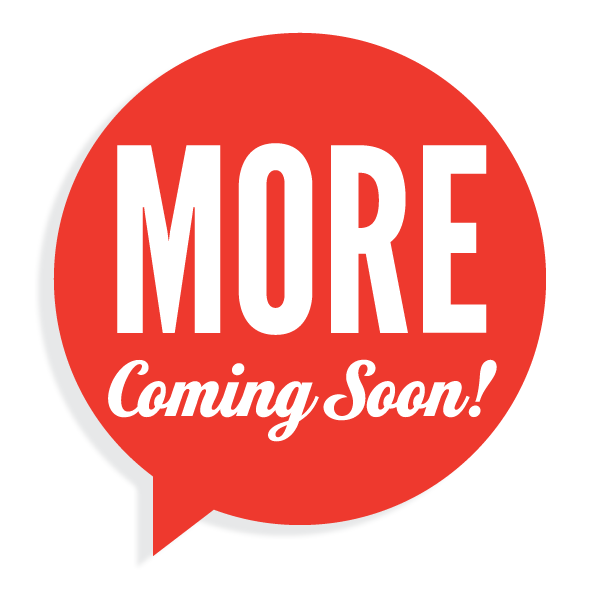 which will include a description of my two favorite novels, two special awards to publishers for particular projects, an award for DVD curriculum, some honorable mention for a few children’s books, a couple of real doozies and several other fun selections.
which will include a description of my two favorite novels, two special awards to publishers for particular projects, an award for DVD curriculum, some honorable mention for a few children’s books, a couple of real doozies and several other fun selections.
And, we will proudly bestow a BookNotes Best Award as a tribute to a book that is nearly the same as a “lifetime achievement award.” This will be a line-up you aren’t going to want to miss. It’s been a good year, and we are glad that so many still care about books, reading, reviewing. We appreciate
your support.
BookNotes
SPECIALDISCOUNTANY ITEM MENTIONED
20% off
order heretakes you to the secure Hearts & Minds order form pagejust tell us what you want
inquire here
if you have questions or need more information
just ask us what you want to know
Hearts & Minds 234 East Main Street Dallastown, PA 17313 717-246-3333
read@heartsandmindsbooks.com
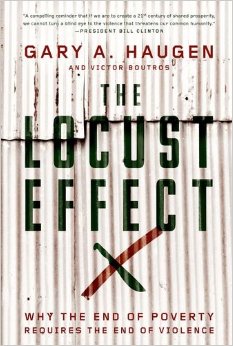 ne would be hard-pressed to suggest a more emotionally-gripping book as this new one by Gary Haugen, the State Department lawyer turned human rights activist, founder of the extraordinarily important International Justice Mission. In my estimation, it was Mr. Haugen and IJM that almost single-handedly put sexual trafficking and contemporary slavery on the radar of evangelical Christians, which, in turn, has helped make contemporary abolition work a cause celebre. IJM really did help pave the way on this, both helping cement the renaissance of social concern happening within the young evangelical world, and awakening the world at large to the stunning statistics on the prevalence of contemporary slavery. There are many other important scholars/reporters (like Kevin Bales whose writing is invaluable) and effective organizations like the Salvation Army Initiative against sexual trafficking, the respected legal aid ministry Advocates International, or Not for Sale — I hope you know their must-read, amazingly important book by David Batstone Not for Sale: The Return of the Global Slave Trade and How We Can Fight It (HarperOne; $16.99.) Alongside these and others, IJM is truly one of the preeminent faith-based human rights organizations fighting systematic evil.
ne would be hard-pressed to suggest a more emotionally-gripping book as this new one by Gary Haugen, the State Department lawyer turned human rights activist, founder of the extraordinarily important International Justice Mission. In my estimation, it was Mr. Haugen and IJM that almost single-handedly put sexual trafficking and contemporary slavery on the radar of evangelical Christians, which, in turn, has helped make contemporary abolition work a cause celebre. IJM really did help pave the way on this, both helping cement the renaissance of social concern happening within the young evangelical world, and awakening the world at large to the stunning statistics on the prevalence of contemporary slavery. There are many other important scholars/reporters (like Kevin Bales whose writing is invaluable) and effective organizations like the Salvation Army Initiative against sexual trafficking, the respected legal aid ministry Advocates International, or Not for Sale — I hope you know their must-read, amazingly important book by David Batstone Not for Sale: The Return of the Global Slave Trade and How We Can Fight It (HarperOne; $16.99.) Alongside these and others, IJM is truly one of the preeminent faith-based human rights organizations fighting systematic evil.  as I recall he was interested that an evangelical like me was involved with Amnesty International. I have chatted with him since and have heard him several times over the years (at an international CLS event and at our Pittsburgh Jubilee conference) and believe him to be one of the most inspired individuals I have ever met. His organization is serious, thoughtful, principled, and effective. (And — although it is a topic for another day — he brings in our friend Ruth Haley Barton for spiritual direction; the staff at his headquarters have found that being steeped in prayer and profound spiritual practices allows them to look to unwaveringly at some of the greatest evils on can behold, and survive.)
as I recall he was interested that an evangelical like me was involved with Amnesty International. I have chatted with him since and have heard him several times over the years (at an international CLS event and at our Pittsburgh Jubilee conference) and believe him to be one of the most inspired individuals I have ever met. His organization is serious, thoughtful, principled, and effective. (And — although it is a topic for another day — he brings in our friend Ruth Haley Barton for spiritual direction; the staff at his headquarters have found that being steeped in prayer and profound spiritual practices allows them to look to unwaveringly at some of the greatest evils on can behold, and survive.)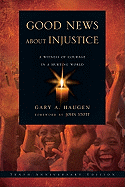 Injustice: A Witness of Courage in a Hurting World (IVP; $16.00) is a fine introduction to a public faith, being committed to the common good, and to the ways in which God’s gospel can equip us to understand and fight complex evil. It is not just a rousing call to activism, but a wise and prudent study of how to proceed in being better citizens and more aware about our world. There are good stories and it is a fine reminder that God stands against all injustices, and we should too. I like Andy Crouch’s fine comment on the 10th anniversary expanded edition that was released a few years ago: “Very few books are better after ten years than when they were first published. This is one of them. Its vision has become more relevant, compelling and, most of all, achievable than we ever could have hoped.”
Injustice: A Witness of Courage in a Hurting World (IVP; $16.00) is a fine introduction to a public faith, being committed to the common good, and to the ways in which God’s gospel can equip us to understand and fight complex evil. It is not just a rousing call to activism, but a wise and prudent study of how to proceed in being better citizens and more aware about our world. There are good stories and it is a fine reminder that God stands against all injustices, and we should too. I like Andy Crouch’s fine comment on the 10th anniversary expanded edition that was released a few years ago: “Very few books are better after ten years than when they were first published. This is one of them. Its vision has become more relevant, compelling and, most of all, achievable than we ever could have hoped.” 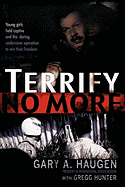 moving and dramatic portrait of some of the rescue operations IJM has done, walking alongside lawyers and humanitarians in the field as they bust up cruelly oppressive brothels. IJM’s work is always dramatic, but often it includes long and dreary litigations, conversations with police and local beurocrats, wondering why this law against child labor or that regulation about worker safety or that UN Declaration against sexual trafficking isn’t being enforced. (Indeed, this is much of what the new book is about, the biggest picture of structural and legal reform needed to protect the poor from systemic violations of the dignity.) But in this book, they showcase the occasional project of literally setting captives free by risky and dramatic intervention. Even the cover is dramatic in a gritty kind of way — and I’ve even met people whose pictures are shown inside, and who were part of the team in this op.
moving and dramatic portrait of some of the rescue operations IJM has done, walking alongside lawyers and humanitarians in the field as they bust up cruelly oppressive brothels. IJM’s work is always dramatic, but often it includes long and dreary litigations, conversations with police and local beurocrats, wondering why this law against child labor or that regulation about worker safety or that UN Declaration against sexual trafficking isn’t being enforced. (Indeed, this is much of what the new book is about, the biggest picture of structural and legal reform needed to protect the poor from systemic violations of the dignity.) But in this book, they showcase the occasional project of literally setting captives free by risky and dramatic intervention. Even the cover is dramatic in a gritty kind of way — and I’ve even met people whose pictures are shown inside, and who were part of the team in this op. 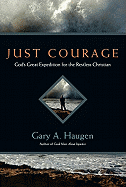 third book Haugen wrote is the one I most often recommend as it is basic, clear, and has great stories. It is a collection of talks, sermons, essays and study pieces that are exquisite, powerful, and very highly recommended. Haugen has a way of inviting those on the sidelines into the struggle, and he motivates those who care about the Bible most of all. You really should know this book, especially if you need an inspiring guide to profoundly Christian social action.
third book Haugen wrote is the one I most often recommend as it is basic, clear, and has great stories. It is a collection of talks, sermons, essays and study pieces that are exquisite, powerful, and very highly recommended. Haugen has a way of inviting those on the sidelines into the struggle, and he motivates those who care about the Bible most of all. You really should know this book, especially if you need an inspiring guide to profoundly Christian social action.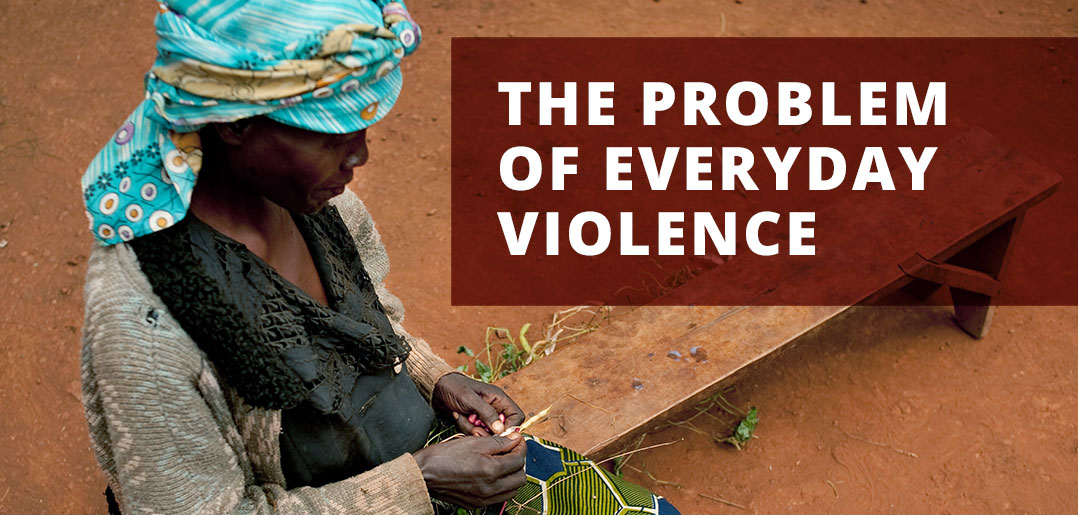 he book opens with three powerful case studies (in Peru, India and Kenya) of grotesque, systematic practices of failures to enforce laws against murder, rape, torture, and human slavery, reminding us that this global crisis is not merely occasional, nor is it abstract. Haugen’s keen ability to tell gut-wrenching stories is helpful, showing us in deeply human terms exactly what is at stake. He and his co-author, Victor Boutros, (himself an investigator and prosecutor for the Department of Justice’s Human Trafficking Prosecution Unit) teach us that this vulnerability to violence — the locust effect — is endemic to being poor. They do not mince words, insisting it is “catastrophically crushing the global poor.” The ways in which violence causes poverty is what they explain in this book. And no one on the planet could do it better.
he book opens with three powerful case studies (in Peru, India and Kenya) of grotesque, systematic practices of failures to enforce laws against murder, rape, torture, and human slavery, reminding us that this global crisis is not merely occasional, nor is it abstract. Haugen’s keen ability to tell gut-wrenching stories is helpful, showing us in deeply human terms exactly what is at stake. He and his co-author, Victor Boutros, (himself an investigator and prosecutor for the Department of Justice’s Human Trafficking Prosecution Unit) teach us that this vulnerability to violence — the locust effect — is endemic to being poor. They do not mince words, insisting it is “catastrophically crushing the global poor.” The ways in which violence causes poverty is what they explain in this book. And no one on the planet could do it better. beautifully humane and pragmatically driven, so strong on astute analysis and yet so visionary about hopeful policy reforms and proposals. The stories in The Locust Effect will captivate you, the studies of the rise of coherent criminal justice systems will fascinate you, and the copious footnotes will take you into another world of study. (Haugen and his team have truly scoured the planet for best practices of securing legal protections for the vulnerable and have an amazing grasp of the scholarly research on everything from police training to judicial reform to the legal foundations to anti-slavery efforts.)
beautifully humane and pragmatically driven, so strong on astute analysis and yet so visionary about hopeful policy reforms and proposals. The stories in The Locust Effect will captivate you, the studies of the rise of coherent criminal justice systems will fascinate you, and the copious footnotes will take you into another world of study. (Haugen and his team have truly scoured the planet for best practices of securing legal protections for the vulnerable and have an amazing grasp of the scholarly research on everything from police training to judicial reform to the legal foundations to anti-slavery efforts.) 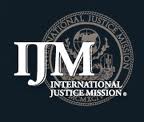 isit www.thelocusteffect.com for more information. You’ll be impressed. And come on back and order the book from us.
isit www.thelocusteffect.com for more information. You’ll be impressed. And come on back and order the book from us.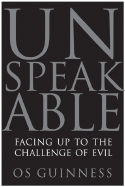 nspeakable: Facing Up to the Challenge of Evil Os Guinness (HarperOne) $14.99 Guineess is always worth reading and one of our most valued cultural critics. This is “why does God allow evil” asked in light of genocide and torture and trafficking. Os’ famous family has long been involved in abolitionist causes and he himself has lived all over the world, seeing oppression close up. (His son worked for IJM for a while, in fact.) So his learned, philosophical mind and his lucid, eloquent writing is well suited for asking this hard, complex, and painful human question about the nature of suffering, well applied for contemporary activists. This is an important book, moving and interesting and urgent. It is very highly recommended for those needing to ponder the very deepest questions behind Haugen’s vivid and passionate book.
nspeakable: Facing Up to the Challenge of Evil Os Guinness (HarperOne) $14.99 Guineess is always worth reading and one of our most valued cultural critics. This is “why does God allow evil” asked in light of genocide and torture and trafficking. Os’ famous family has long been involved in abolitionist causes and he himself has lived all over the world, seeing oppression close up. (His son worked for IJM for a while, in fact.) So his learned, philosophical mind and his lucid, eloquent writing is well suited for asking this hard, complex, and painful human question about the nature of suffering, well applied for contemporary activists. This is an important book, moving and interesting and urgent. It is very highly recommended for those needing to ponder the very deepest questions behind Haugen’s vivid and passionate book.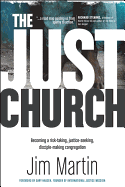 he Just Church: Becoming a Risk-Taking, Justice-Seeking, Disciple-Making Congregation Jim Martin (Tyndale/Momentum) $14.99 Want to get your own congregation more involved in thinking about social justice, even fighting systemic evil of this sort? Jim is the director of church relations for IJM and this is an amazing book — really, really good, visionary and practical, helping overcome obstacles of instituting more viable options for local church concern and involvement. Regardless of your denomination, this is, I believe, the best handbook I’ve yet seen exploring this kind of ministry, making sure that justice work isn’t marginalizes or seen as a fad or interest of the few, but a central part of the basic formation and disciple-making process of the church. The author is evangelical and the book is especially helpful for those whose vision is gospel-centered and perhaps skeptical of taking on big, political concerns…
he Just Church: Becoming a Risk-Taking, Justice-Seeking, Disciple-Making Congregation Jim Martin (Tyndale/Momentum) $14.99 Want to get your own congregation more involved in thinking about social justice, even fighting systemic evil of this sort? Jim is the director of church relations for IJM and this is an amazing book — really, really good, visionary and practical, helping overcome obstacles of instituting more viable options for local church concern and involvement. Regardless of your denomination, this is, I believe, the best handbook I’ve yet seen exploring this kind of ministry, making sure that justice work isn’t marginalizes or seen as a fad or interest of the few, but a central part of the basic formation and disciple-making process of the church. The author is evangelical and the book is especially helpful for those whose vision is gospel-centered and perhaps skeptical of taking on big, political concerns…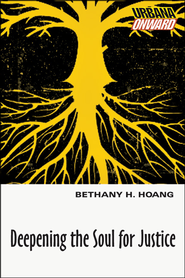 eepening the Soul for Justice Bethany H. Hoang (IVP) $5.00 Bethany Hoang (who is speaking on the main stage at the CCO Jubilee conference this year) has worked for IJM for years, and this small booklet is a powerhouse of a resource, wonderfully written, calling us to make prayerfulness a central part of our justice work, and social justice concerns a central part of our prayer lives. It is a theme I noted above, that IJM values. She insists that engaging in spiritual formation practices are part of how we sustain robust discipleship in the world, amidst all its hurt and heavy demands. She and her IJM colleagues should know. This is a beautiful little book, inspiring, thoughtful, and helpful, allowing us to deepen our souls, and connect the journey inward to God’s missional work in the world.
eepening the Soul for Justice Bethany H. Hoang (IVP) $5.00 Bethany Hoang (who is speaking on the main stage at the CCO Jubilee conference this year) has worked for IJM for years, and this small booklet is a powerhouse of a resource, wonderfully written, calling us to make prayerfulness a central part of our justice work, and social justice concerns a central part of our prayer lives. It is a theme I noted above, that IJM values. She insists that engaging in spiritual formation practices are part of how we sustain robust discipleship in the world, amidst all its hurt and heavy demands. She and her IJM colleagues should know. This is a beautiful little book, inspiring, thoughtful, and helpful, allowing us to deepen our souls, and connect the journey inward to God’s missional work in the world. 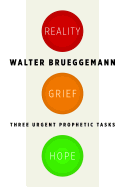 eality Grief Hope: Three Urgent Prophetic Tasks Walter Brueggemann (Eerdmans) $15.00 I will need to review this more carefully soon, but for now, I wanted to recommend this for anyone who is struggling with these great burdens of caring about the world, about the needs of our neighbors, about the seemingly intransigence and complexity of the issues of our time and who wants a thick, richly consider Biblical rumination about it all. How do we face reality and not cover up the pain and brokenness? What is the role of lament, sharing grief, naming our pains and losses and fears? And can hope emerge from that? Is there a connection between the tragedy of Jewish exile in 587 BC and our 21st century dislocations? How do we imagine all this? I am not sure if Walt wrote this as a long-awaited sequel to the seminal, dense, generative work he did decades ago in The Prophetic Imagination and The Hopeful Imagination, but it sure seems like it to me. Those two books are among my all time favorites, and I cannot underestimate how they have shaped and sustained me. This brand new book is heading to the top of my stack, and I thought you should know of it — perhaps to read alongside Gary Haugen.
eality Grief Hope: Three Urgent Prophetic Tasks Walter Brueggemann (Eerdmans) $15.00 I will need to review this more carefully soon, but for now, I wanted to recommend this for anyone who is struggling with these great burdens of caring about the world, about the needs of our neighbors, about the seemingly intransigence and complexity of the issues of our time and who wants a thick, richly consider Biblical rumination about it all. How do we face reality and not cover up the pain and brokenness? What is the role of lament, sharing grief, naming our pains and losses and fears? And can hope emerge from that? Is there a connection between the tragedy of Jewish exile in 587 BC and our 21st century dislocations? How do we imagine all this? I am not sure if Walt wrote this as a long-awaited sequel to the seminal, dense, generative work he did decades ago in The Prophetic Imagination and The Hopeful Imagination, but it sure seems like it to me. Those two books are among my all time favorites, and I cannot underestimate how they have shaped and sustained me. This brand new book is heading to the top of my stack, and I thought you should know of it — perhaps to read alongside Gary Haugen. 


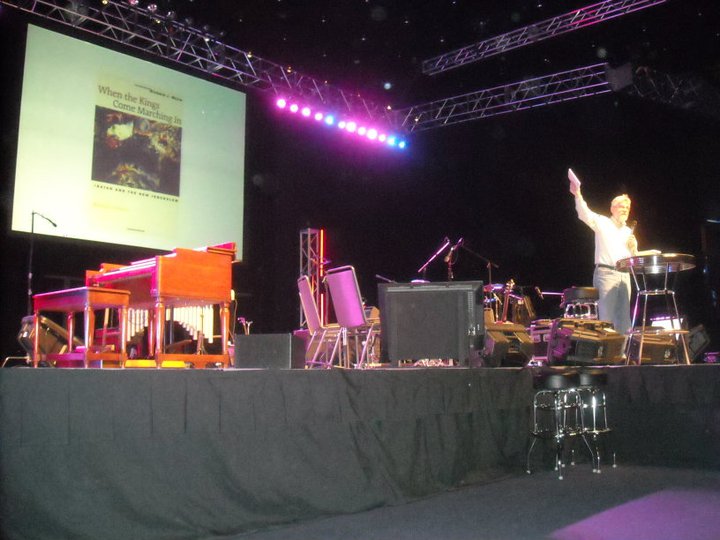
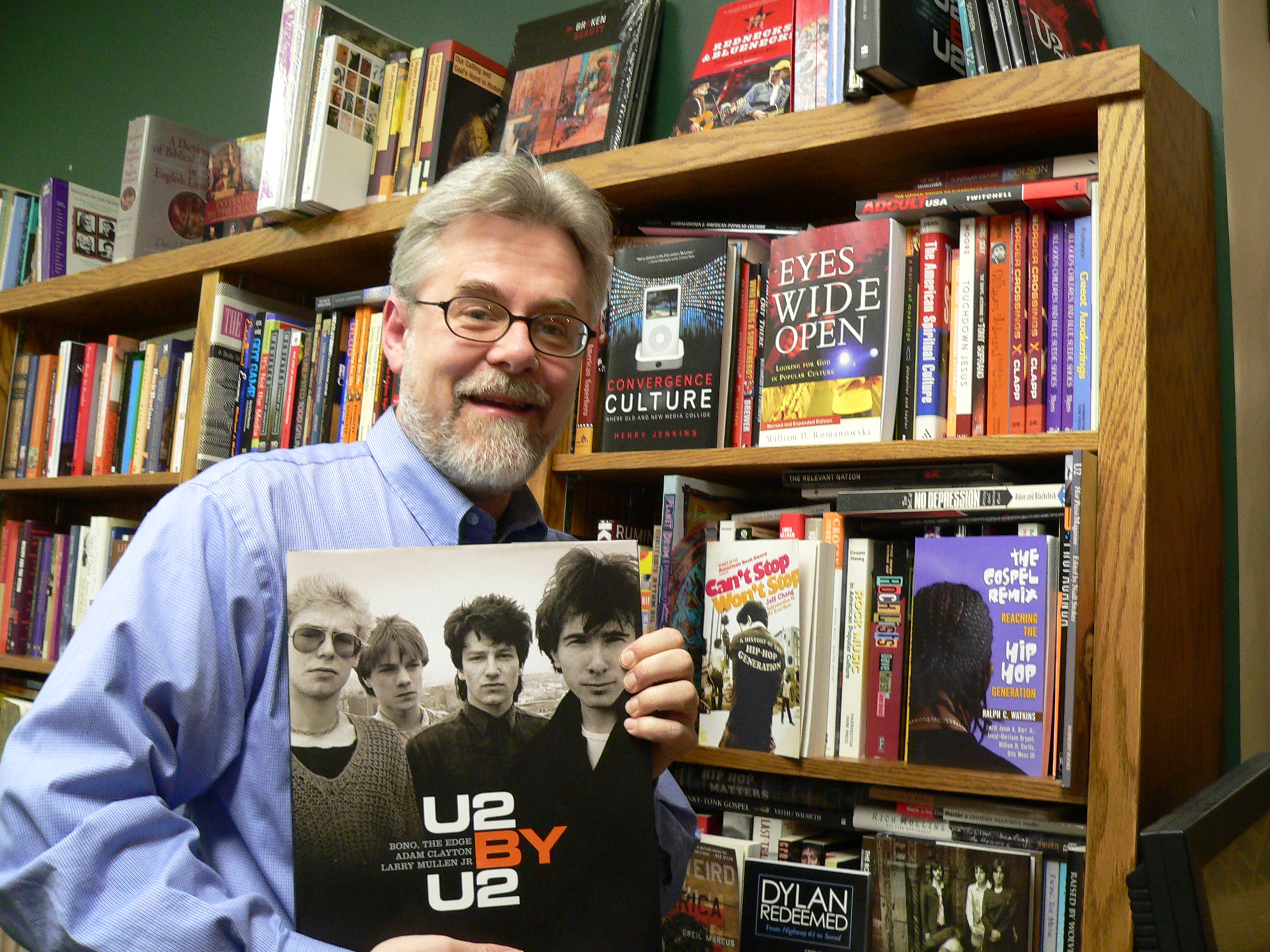
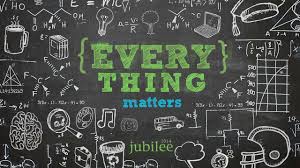
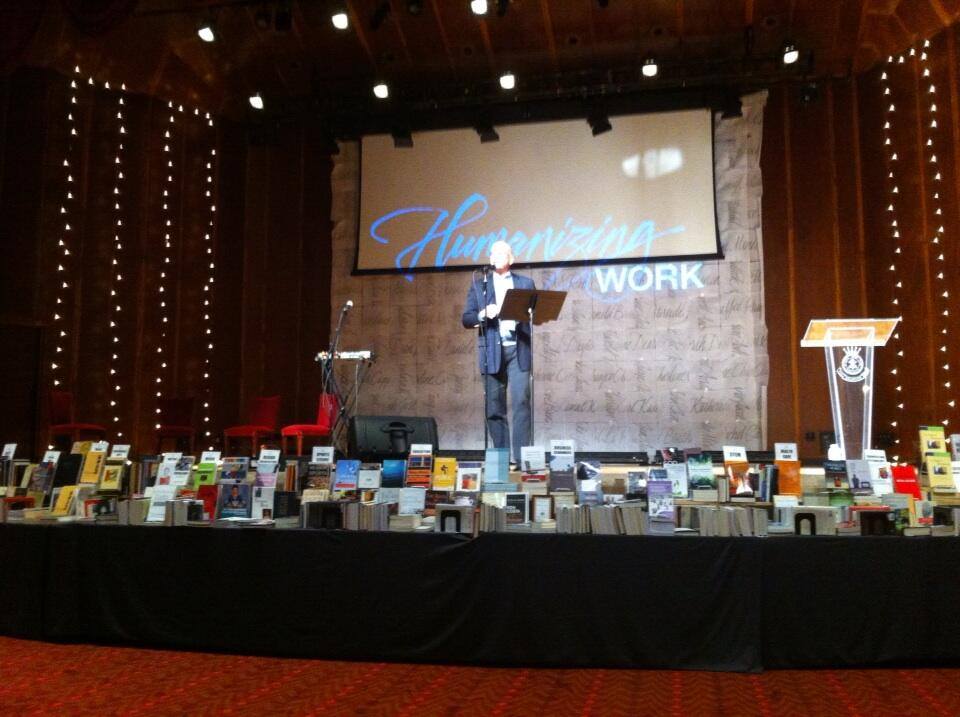
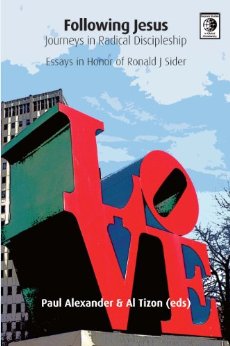
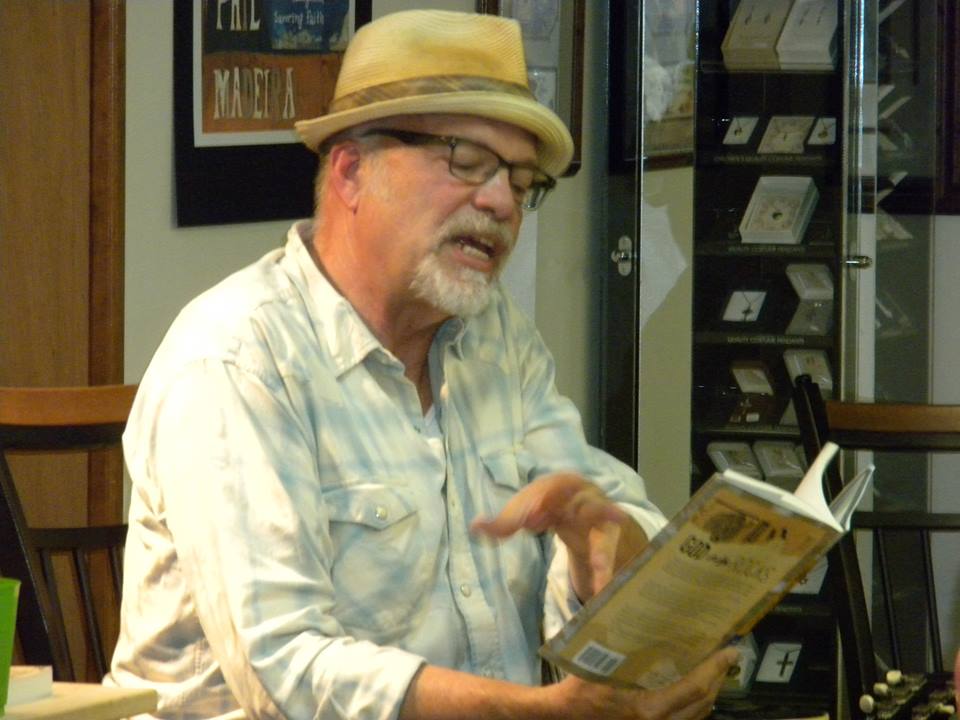
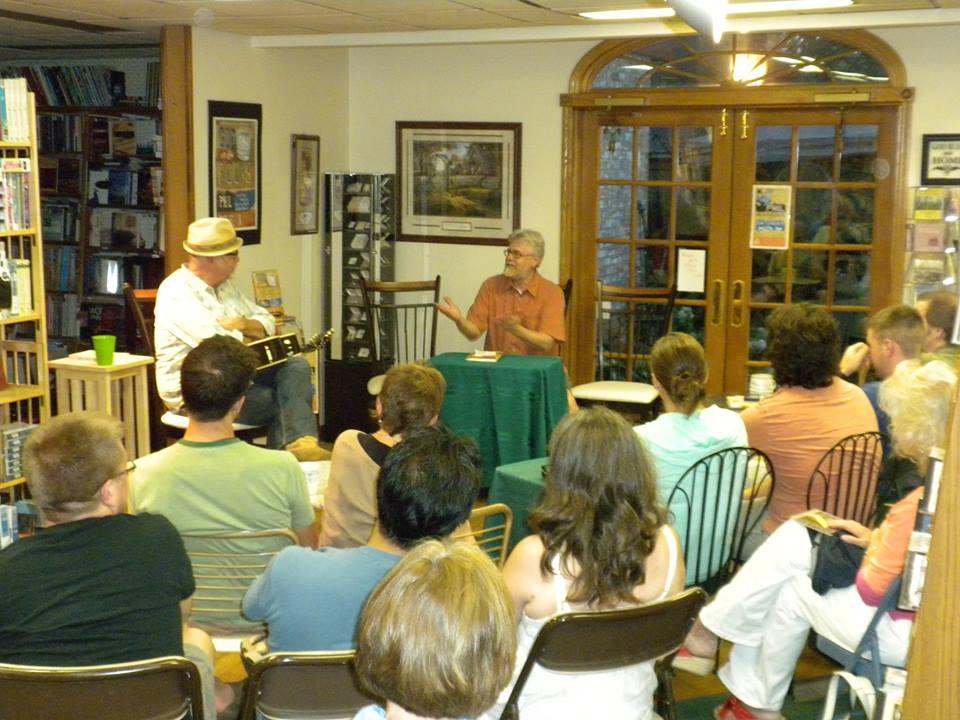
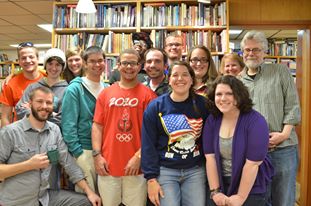
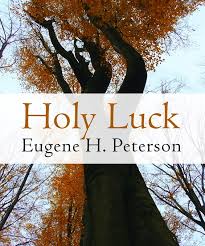
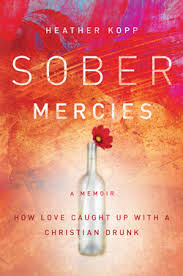
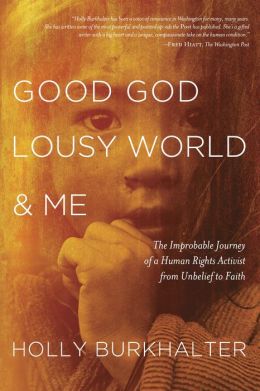
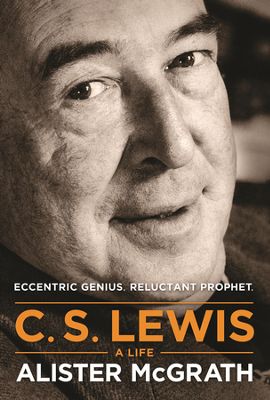
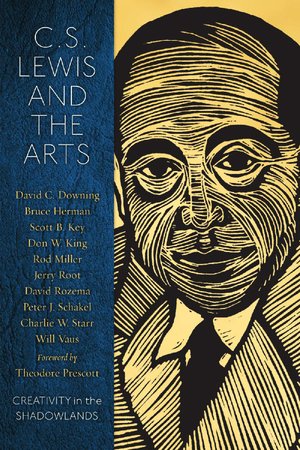 (Square Halo Books) $18.99 These essays are deep and thoughtful, perfect for those who love the literary and aesthetic insights and style of the great man. As many sometimes forget, Lewis was not a cold apologist, arguing for rational reasons about God, but used story and myth and imagination. His vision was, indeed, profound, and some of his best work was in the realm of imagination and poetics. Not only were we so honored and pleased to be the first bookstore to have this, we were glad that another Square Halo book had been released to add to their backlist of nearly essential books for anyone interested in the interplay of faith and the arts.I hope you read
(Square Halo Books) $18.99 These essays are deep and thoughtful, perfect for those who love the literary and aesthetic insights and style of the great man. As many sometimes forget, Lewis was not a cold apologist, arguing for rational reasons about God, but used story and myth and imagination. His vision was, indeed, profound, and some of his best work was in the realm of imagination and poetics. Not only were we so honored and pleased to be the first bookstore to have this, we were glad that another Square Halo book had been released to add to their backlist of nearly essential books for anyone interested in the interplay of faith and the arts.I hope you read 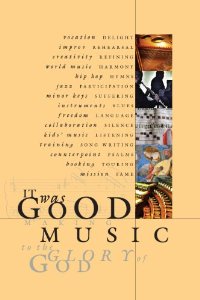
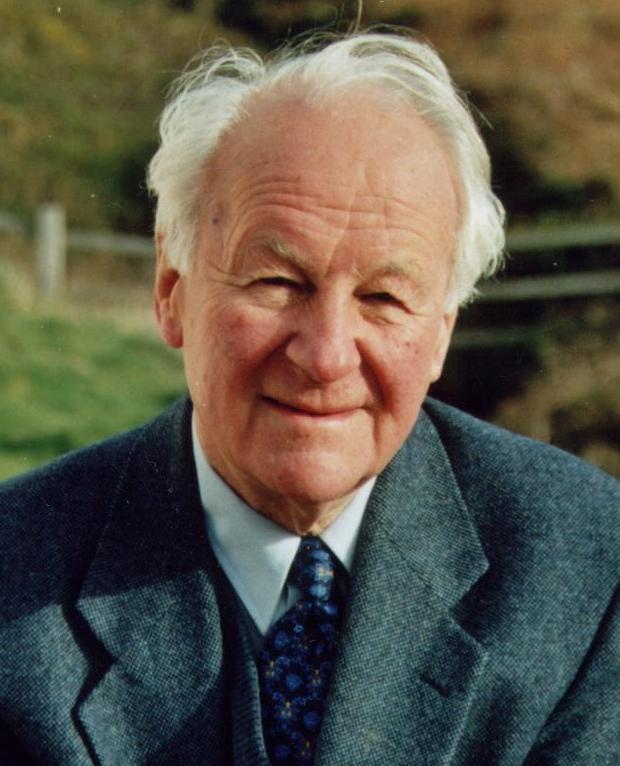
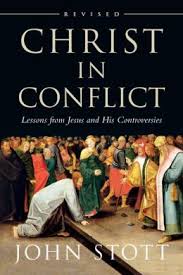
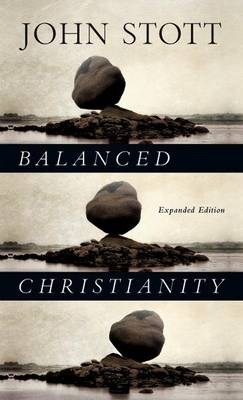
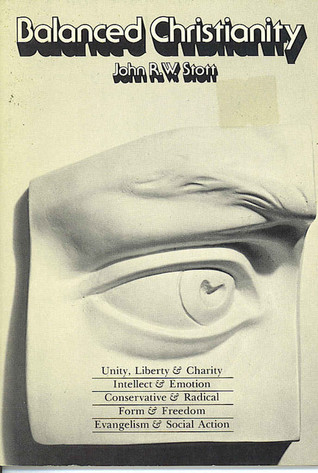
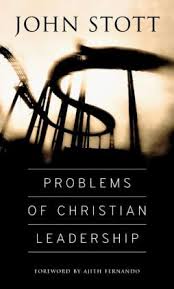
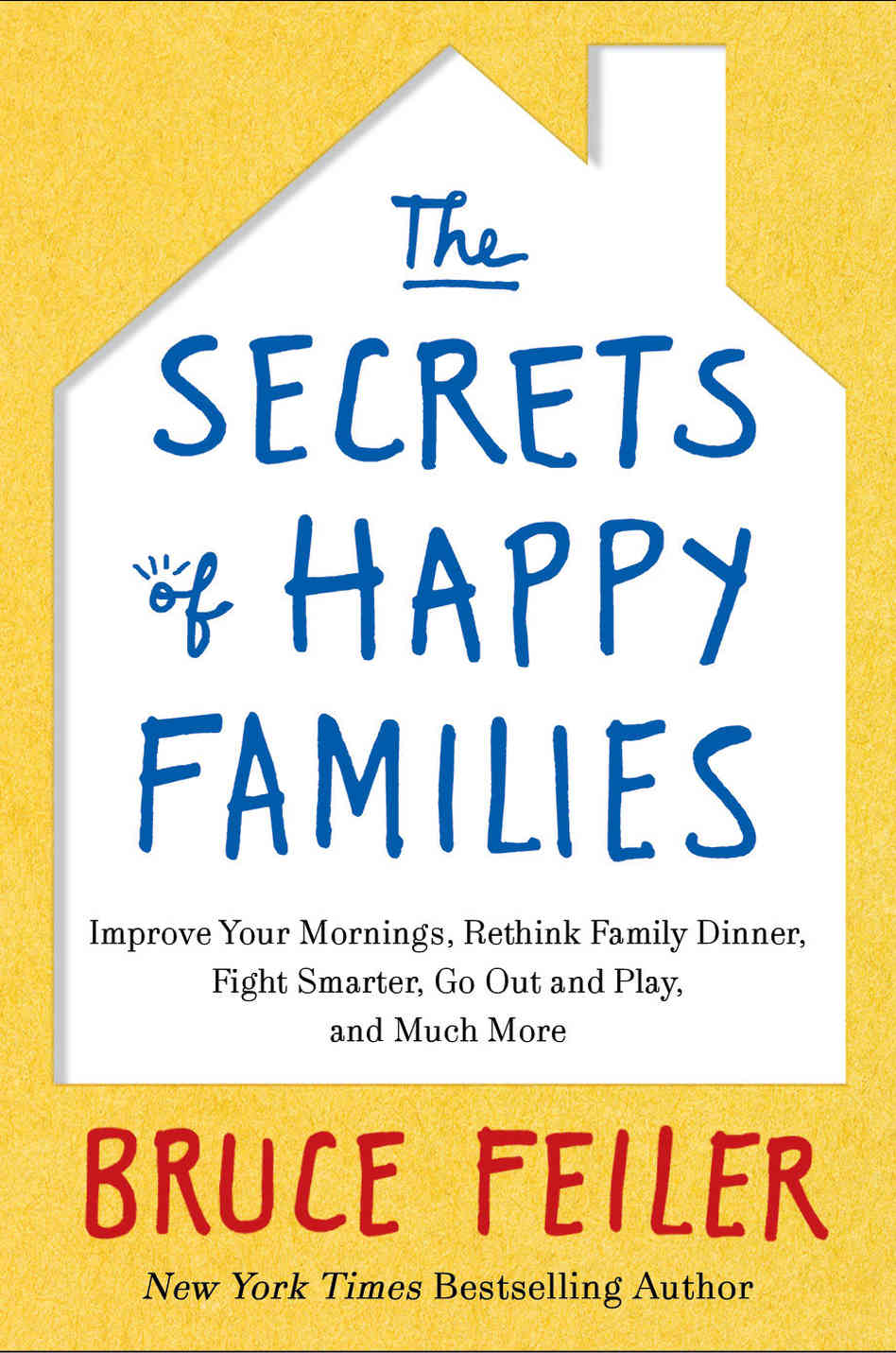
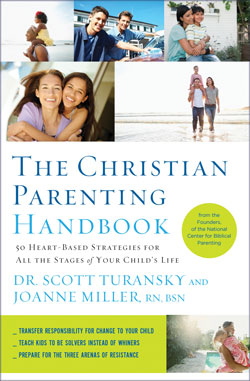
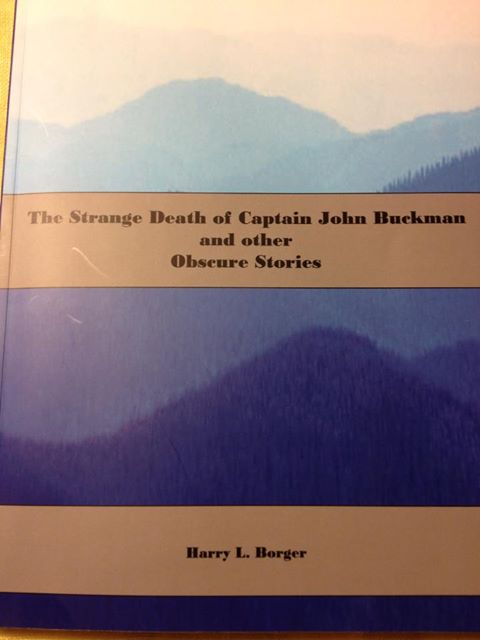

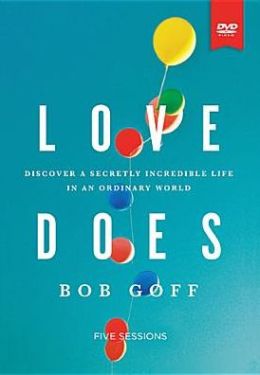

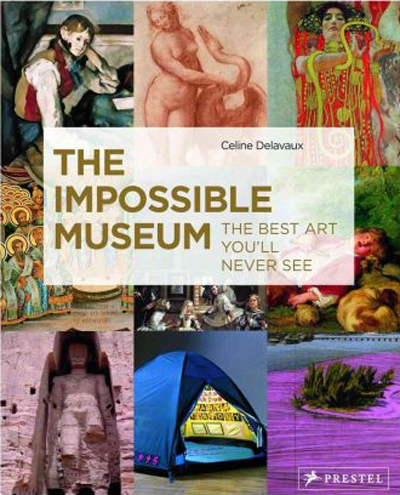
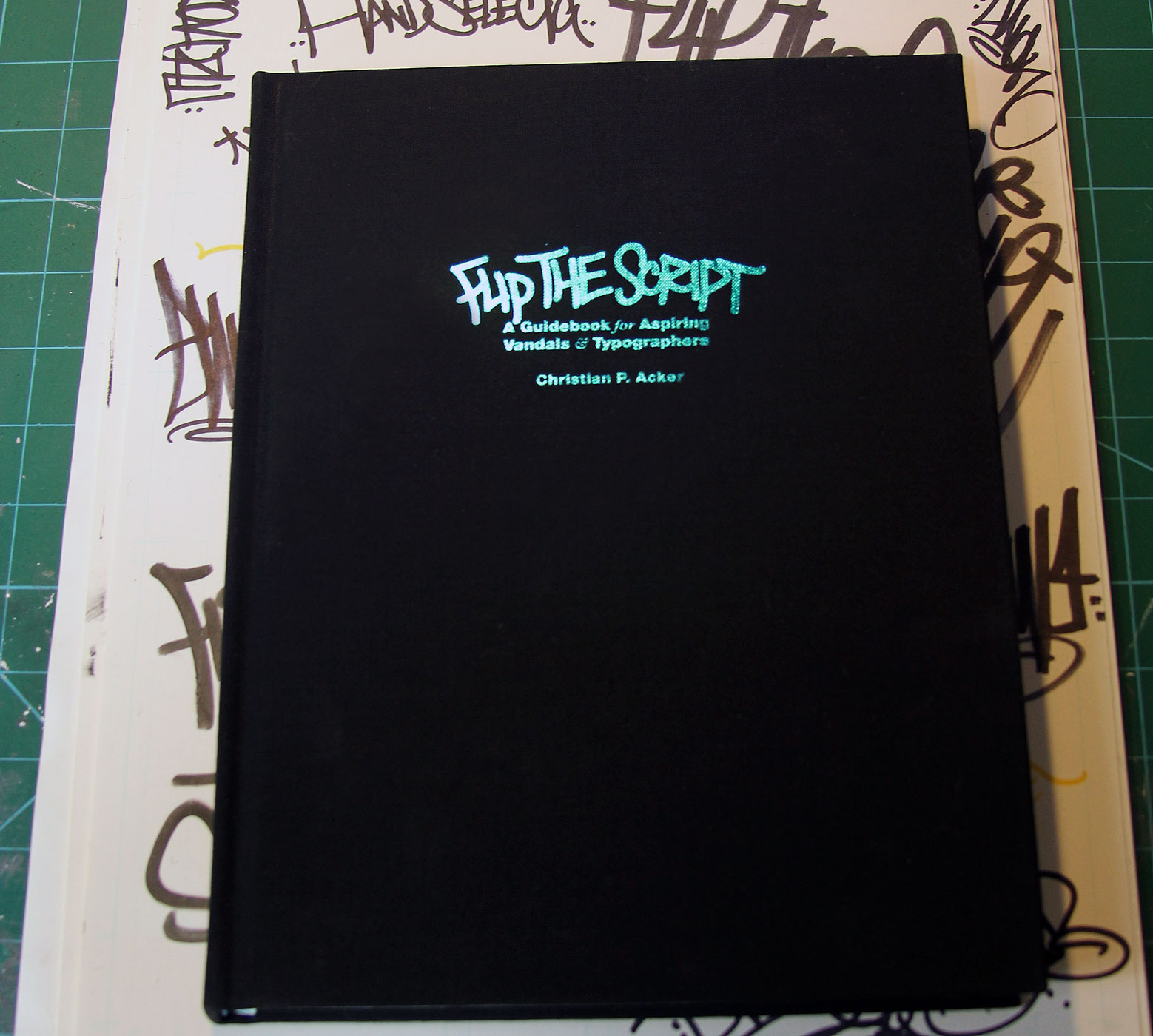
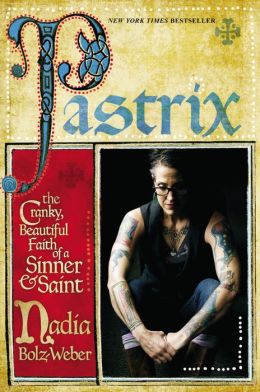
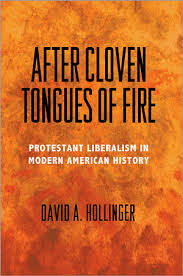
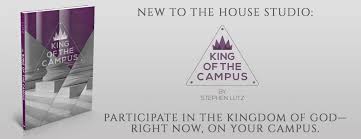
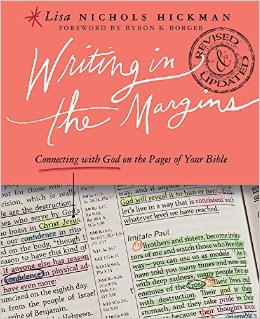

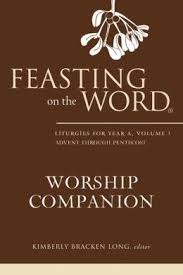
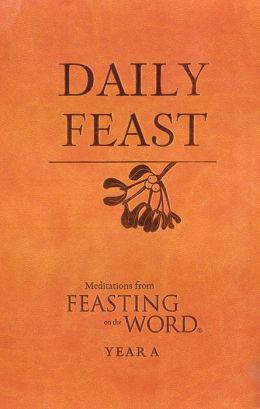
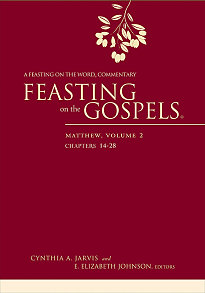

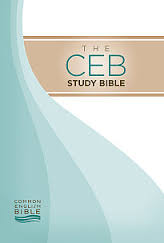
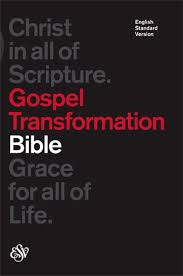
 I do so hope you saw our Hearts & Minds Bookstore’s
I do so hope you saw our Hearts & Minds Bookstore’s 